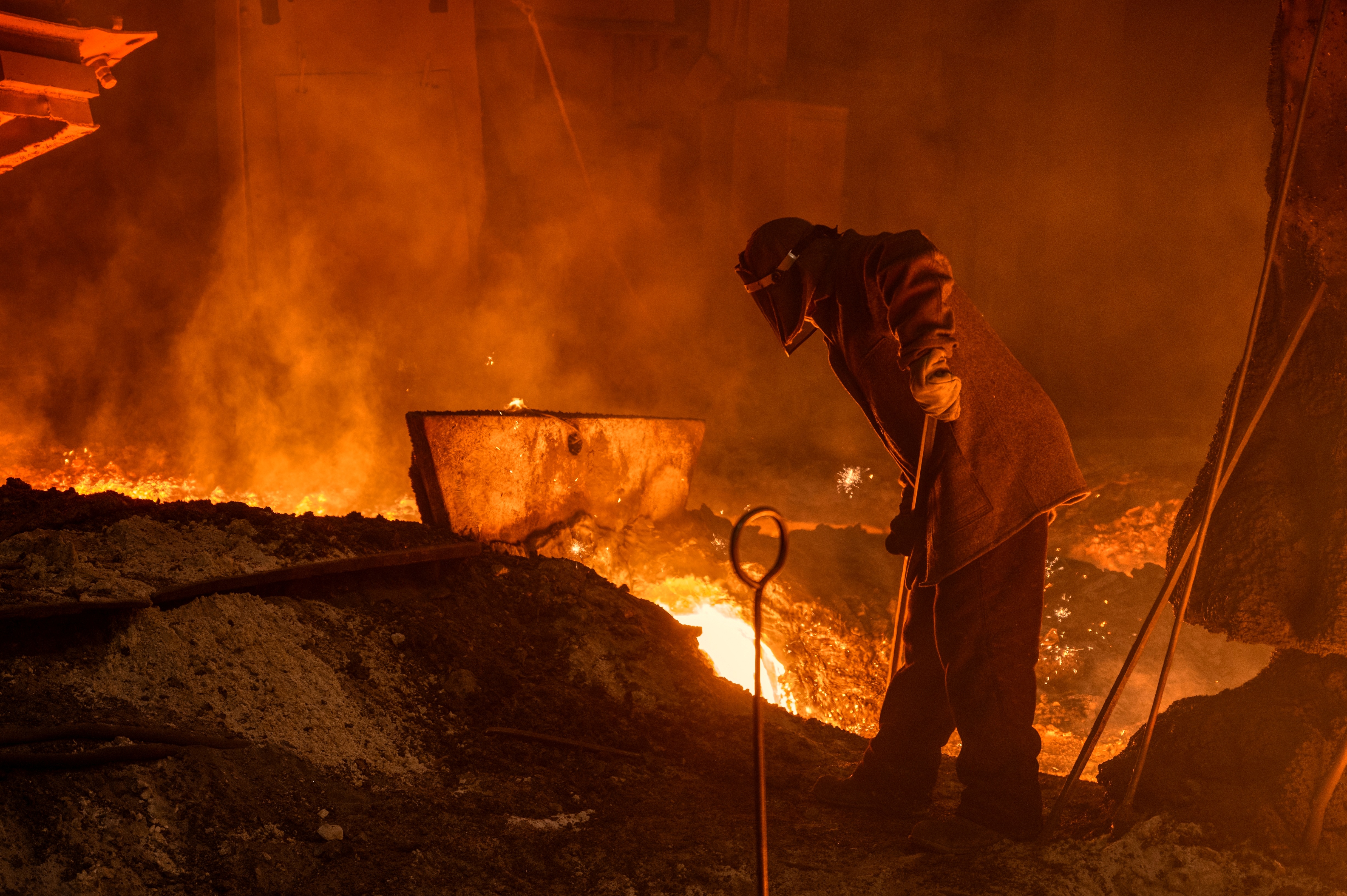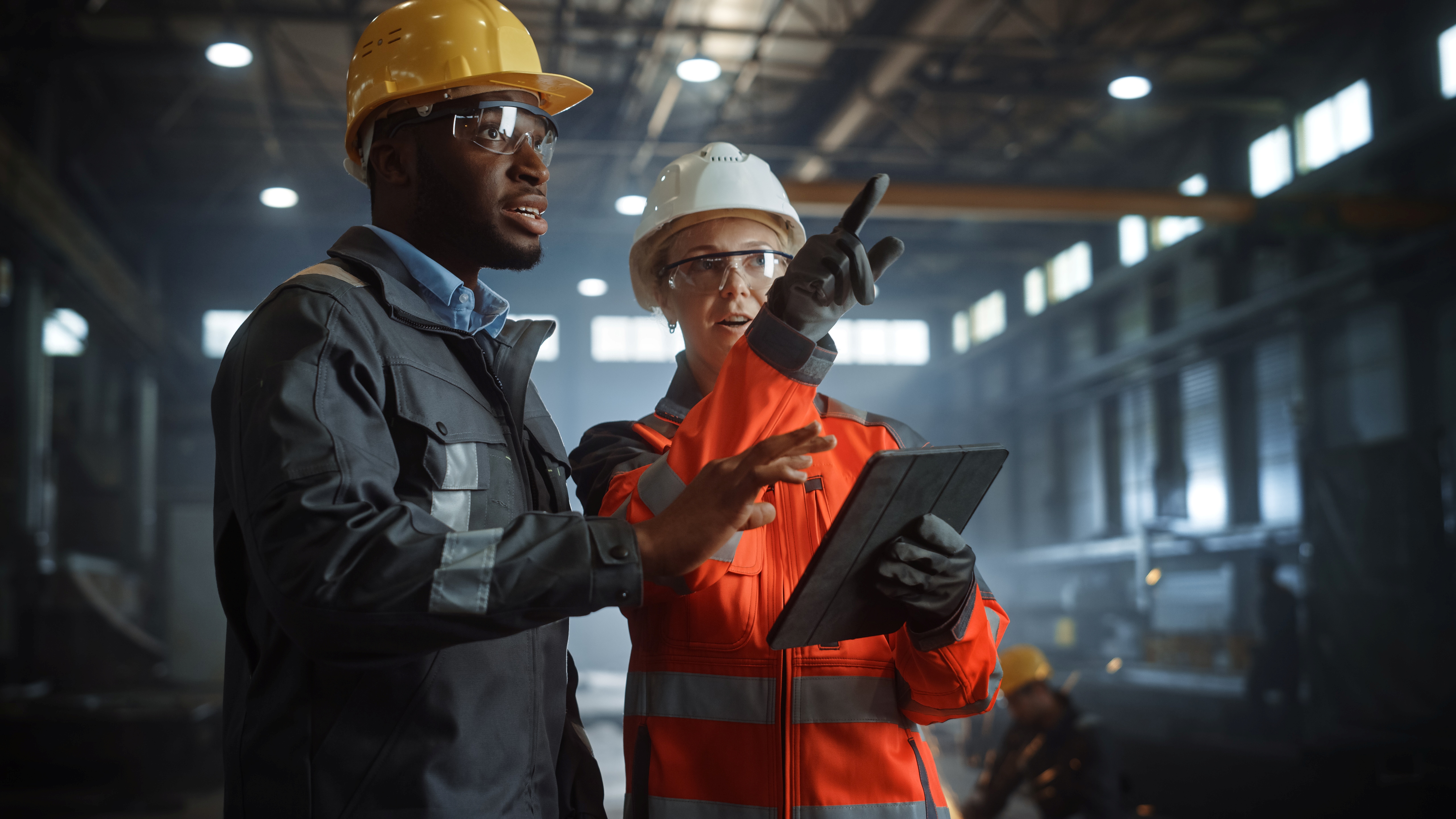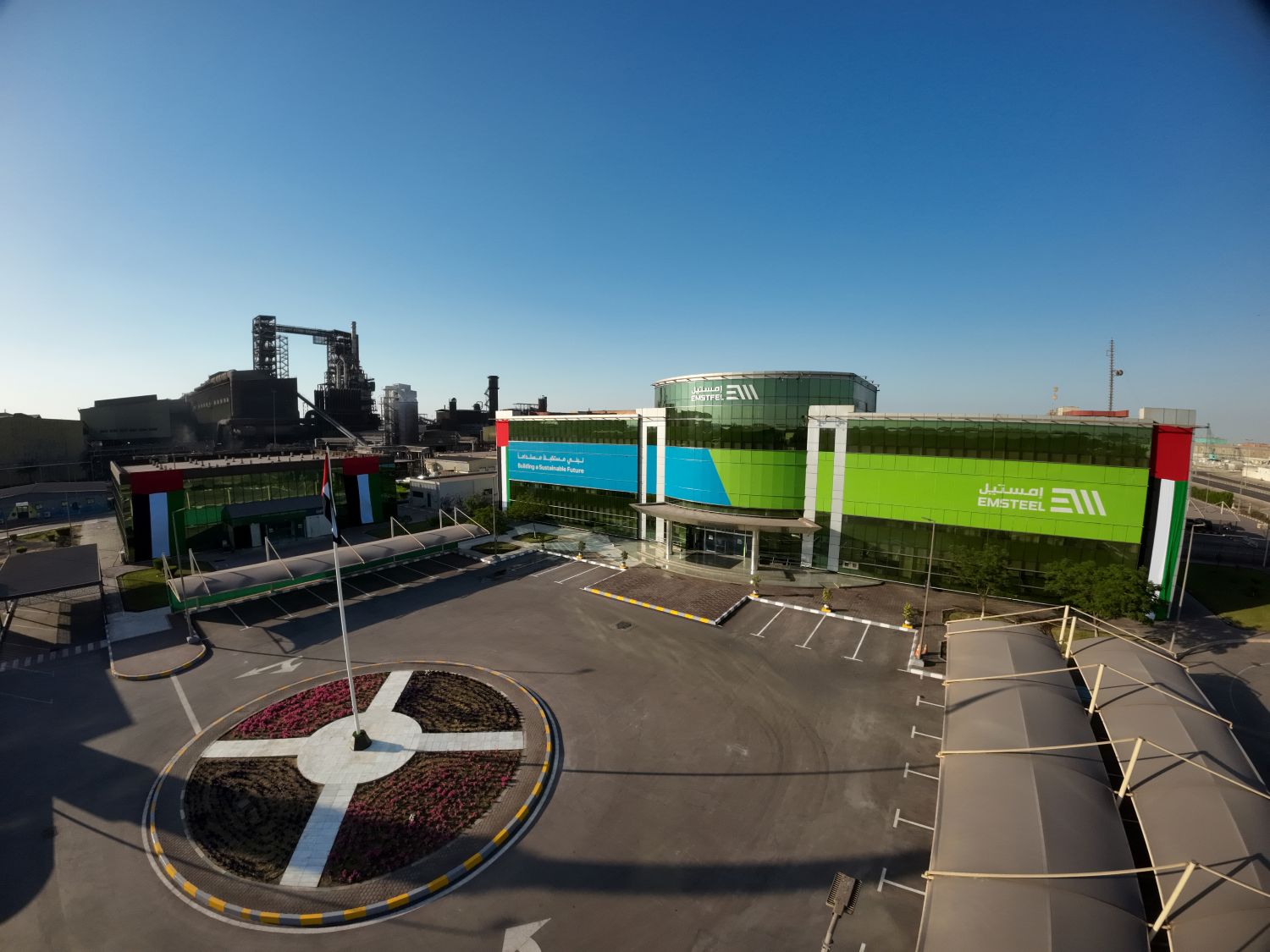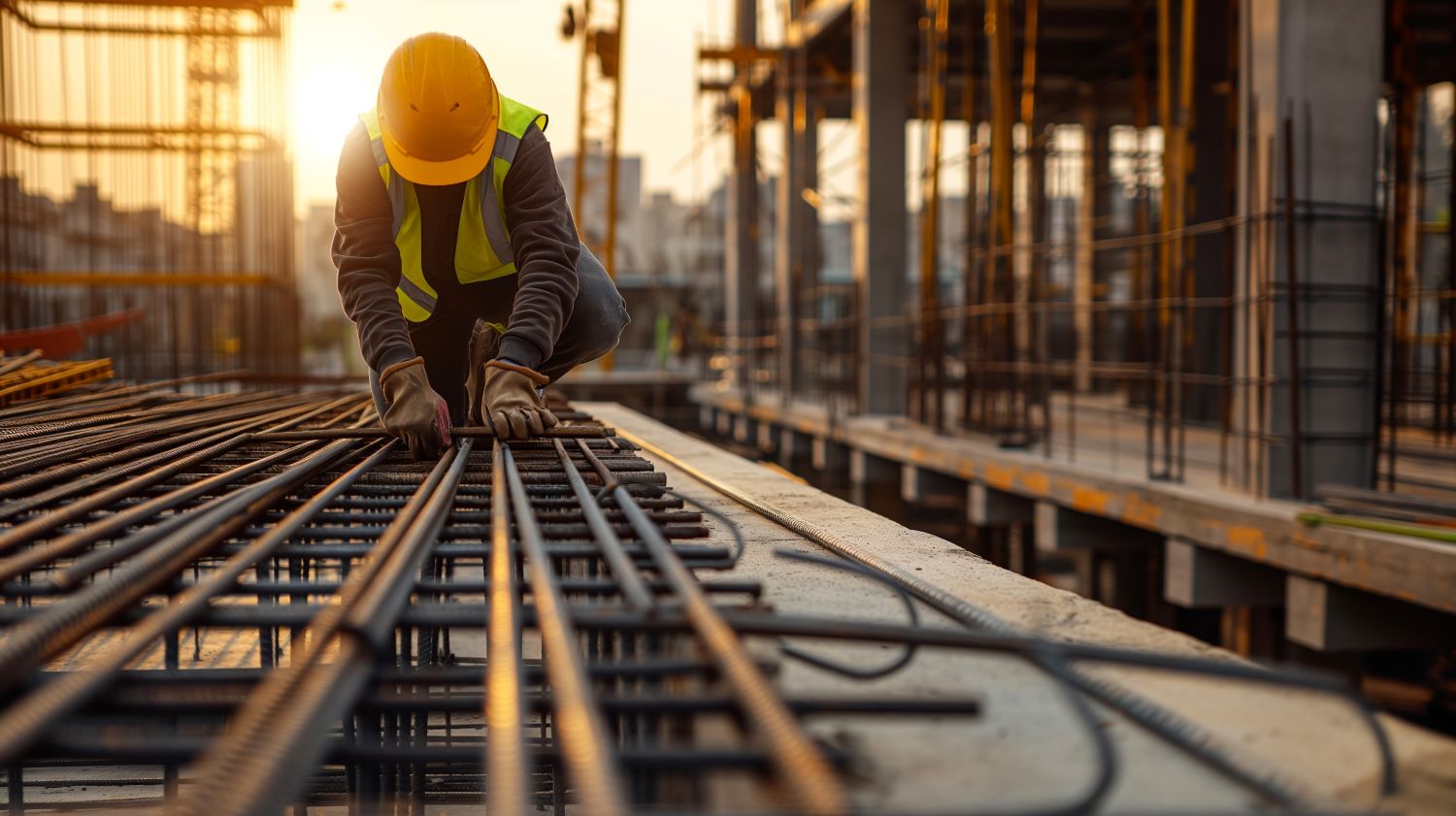

July 2025 Newsletter
The July edition of the ResponsibleSteel™ newsletter is now live.
This month, we mark a significant milestone: thyssenkrupp Steel’s Duisburg site, the largest steel production site in Europe, is now ResponsibleSteel Core Site Certified. This certification reflects a strong commitment to independently verified, credible progress.
We're also inviting members and stakeholders to get involved in our Certified Steel campaign, which demonstrates how ResponsibleSteel certification supports buyers and investors in making informed, sustainable choices.
Understanding and addressing the social impacts of the net zero transition remains a priority. Together with IRMA Initiative for Responsible Mining Assurance ,we’ve published a new blog and will be hosting a webinar exploring how voluntary sustainability standards can contribute to a Just Transition.
Click here to read the full newsletter.
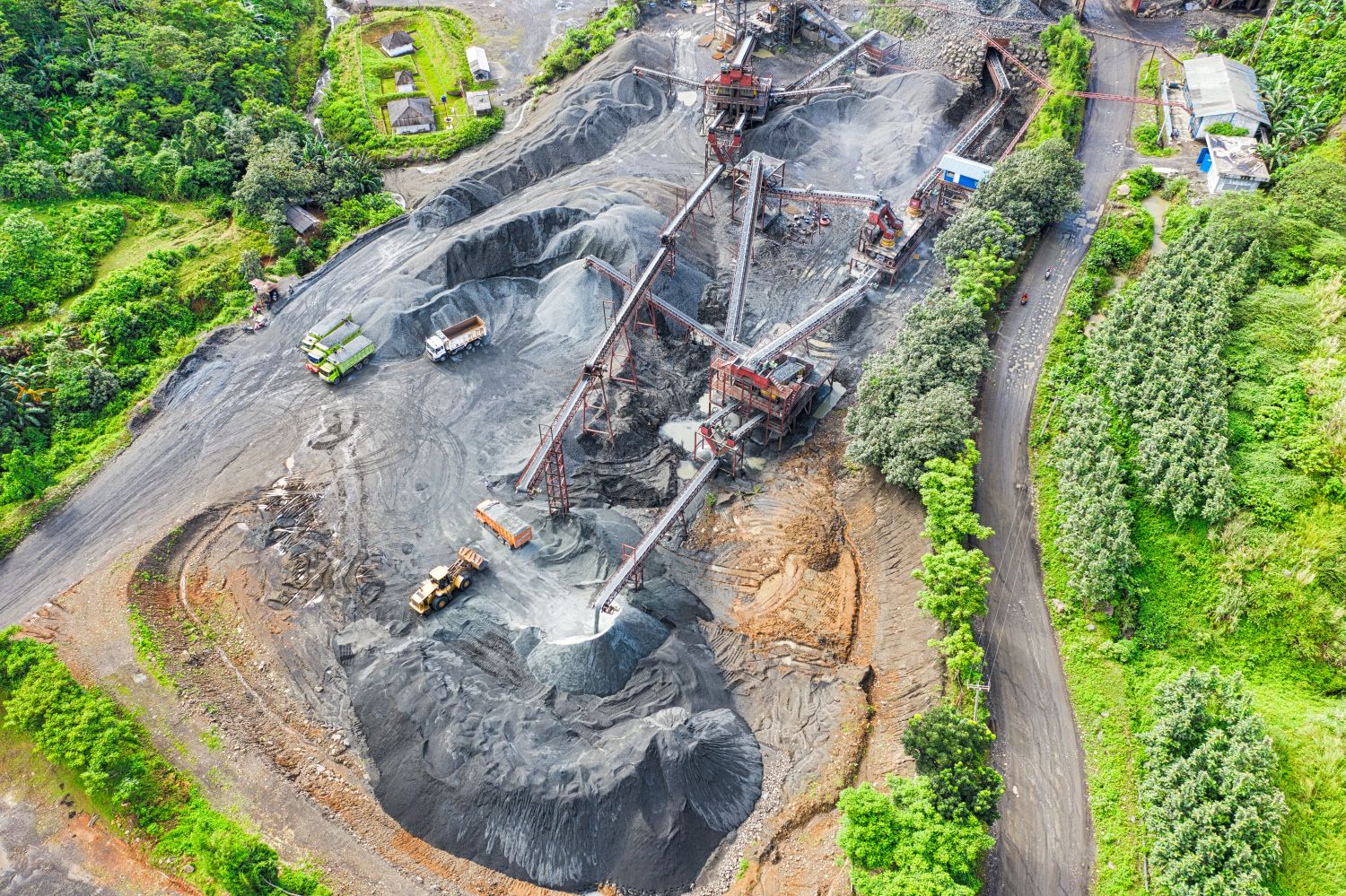

Exploring the role of standards in driving a responsible transition in steel and mining: A collaborative journey between IRMA and ResponsibleSteel
As the global shift toward decarbonisation gains momentum, so too do the questions around how the transition will affect people and communities. While emerging technologies bring a cleaner future, they also bring with them significant disruption, particularly in heavy industries like steel and mining. New technologies, shifting production geographies, and economic restructuring can create unintended social consequences such as job losses, community displacement, and weakened local economies.
In response to this, two Voluntary Sustainability Standards, the Initiative for Responsible Mining Assurance (IRMA) and ResponsibleSteel have come together to explore what a just transition looks like for these sectors, and to explore the role of standards in steel and mining to drive a responsible transition. This joint project, supported by the ISEAL Innovations Fund and the Swiss State Secretariat for Economic Affairs (SECO), seeks to understand the social impacts of transitions and how voluntary sustainability standards can help ensure that this transformation is fair, inclusive, and responsible.
This collaboration reflects a growing recognition of the value in shared learning between the steel and mining sectors. By working together, IRMA and ResponsibleSteel are exchanging insights, comparing approaches, and learning from each other’s experiences to strengthen how just transition principles are understood and applied.
A shared vision rooted in multi-stakeholder governance
IRMA and ResponsibleSteel were both founded on the principle of multi-stakeholder governance. Their boards include labour unions, civil society, and industry (Purchasers, Indigenous Rights Holders, Investors-IRMA), as well as affected communities in IRMA’s case, ensuring that decisions are not only transparent but also equitable. This approach forms the foundation of our collaboration on the just transition. Together, we bring complementary strengths: IRMA’s standard addresses upstream mining operations at the site level, while ResponsibleSteel covers the downstream steel production process.
The two initiatives are jointly exploring how standards can help mitigate adverse social impacts of decarbonisation, such as the economic consequences of site closures or workforce displacement. Our goal is to provide a common foundation that recognises diverse regional realities and reflects the voices of workers, Indigenous Rights Holders, communities, and industry actors alike in our voluntary sustainability systems.
Laying the groundwork: Research and stakeholder engagement
The first phase of the project centred on an in-depth literature review of over 200 sources, including international standards, academic and practitioner literature, case studies, and online materials, with a focus on content relevant to the steel and mining sectors. This review explored how voluntary sustainability standards, global frameworks, and national policies approach just transition issues, highlighting areas of alignment as well as gaps. Insights were drawn from 11 standards and frameworks relevant to the steel and mining sectors, along with case examples from seven additional countries. Building on this foundation, the team conducted over 30 stakeholder in-depth interviews with voices across industry, labour, Indigenous rights holders, supply chains, policymakers, academia, and civil society. These conversations were then complemented by two multi-stakeholder workshops in Johannesburg and Brussels, which brought together workers, unions, companies, NGOs, Indigenous representatives, and decision-makers. Each phase has contributed valuable, grounded perspectives that continue to shape the direction and priorities of the project.
Key insights from the project so far
What has become clear and consistent throughout both the literature review and the stakeholders' engagement so far is the contested nature of the term ‘Just Transition’. As we all live in different worlds with different contexts of reality, everyone brings their own understanding and priorities when thinking about a just transition. As voluntary sustainability standards, we must be thoughtful in how we define and interpret this term. We need a flexible framework where local context can be well reflected, and the context and priorities are defined by local stakeholders.
Another key insight that emerged from all activities was the critical importance of an inclusive governance and management system that accommodates a meaningful stakeholders' engagement process and inclusive decision making at every step of the way to achieve a just transition. This also presents a challenge - inherent tension between the urgency of just transition issues and the often time-consuming nature of stakeholders' engagement. It is not just about having a process itself, but it is about recognising and addressing the existing power imbalance between stakeholders, and ensuring that the process facilitates meaningful consultation, which, in essence, means providing equitable access to consultation and decision-making processes.
Moving forward
Drawing on their sectoral expertise, multi-stakeholder governance models, and shared commitment to transparency and accountability, IRMA and ResponsibleSteel are exploring how standards can support a just transition in practice. This project marks an initial step toward building a stronger foundation for future efforts, recognising that meaningful progress will depend on continued collaboration and engagement.
Join the conversation
As this joint project progresses, ResponsibleSteel and IRMA would like to continue the conversation with stakeholders. An important milestone in this journey is an upcoming webinar, which will provide an opportunity to share key findings, share what we heard from those who contributed to the project, and explore how voluntary sustainability standards can play a meaningful role in supporting a responsible transition in the steel and mining sectors.
We invite you to join us for a webinar hosted by IRMA and ResponsibleSteel :
Date: Thursday, 4 September
To make it easier for participants in different time zones to join, the same session will be offered at two different times.
Session 1:
10:00–11:30 CEST / 10:00–11:30 SAST (South Africa)
9:00–10:30 BST (UK)
3:00–4:30 PM Southeast Asia (Jakarta Time)
Click here to register for session 1.
Session 2:
16:00–17:30 CEST / 16:00–17:30 SAST (South Africa))
15:00–16:30 BST (UK)
10:00–11:30 AM US Eastern Time (EDT)
Click here to register for session 2.
Find out more about IRMA here.
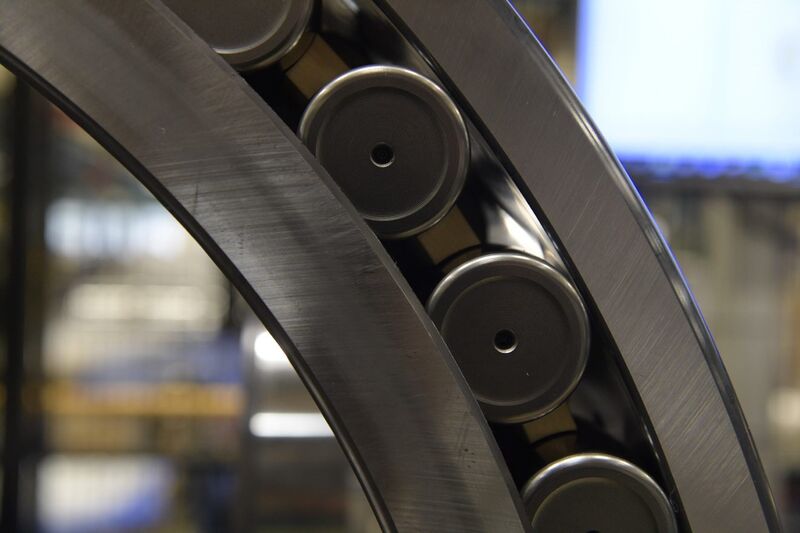

SKF: Advancing decarbonisation through ResponsibleSteel
At SKF, we believe that the journey to net zero must be a collective one, built on shared standards, collaboration across the value chain, and a commitment to continuous improvement. As a global industrial technology leader and significant buyer of steel, purchasing more than half a million tons annually, we recognise the important role we play in supporting the transformation of the steel industry.
Steel is a critical material in our products and represents around 70% of our upstream carbon footprint. In recognition of this, we’ve made the decarbonisation of our steel supply chain a strategic focus. However, we also recognise that genuine progress needs more than internal ambition; it requires industry-wide alignment and credible frameworks to guide action.
That’s why SKF joined ResponsibleSteel. We see ResponsibleSteel as a vital platform for advancing a shared understanding of what responsible steel production looks like - one that integrates environmental, social, and governance (ESG) principles with robust standards for emissions and broader sustainability performance. The initiative’s multi-stakeholder governance and assurance frameworks provide the transparency and consistency needed to support informed decision-making and accelerate change.
We are proud to have contributed to the development of ResponsibleSteel’s International Production Standard, which provides a much-needed framework for measuring and improving the climate performance of steel producers. We actively encourage our steel suppliers to engage with the ResponsibleSteel Standard and consider how it can support their own sustainability journeys. Through SKF’s Sustainability Standard for Suppliers, we promote alignment with ResponsibleSteel’s 13 Principles and reporting expectations with steel and steel component suppliers. We believe that by raising awareness and fostering dialogue around ResponsibleSteel’s approach, we can help build momentum for more sustainable practices across the value chain.
In parallel, we are working closely with selected steelmakers to explore and scale low-carbon technologies. This includes partnerships to develop steel made from recycled content and hydrogen-reduced iron (H-DRI), as well as pilot projects that demonstrate the feasibility of greener steel in industrial applications. These collaborations are helping to demonstrate what’s possible and inspire broader adoption across the sector.
We also use our voice to advocate for systemic change. Through our involvement in initiatives such as ResponsibleSteel and SteelZero, we support the development of policy and market mechanisms that can accelerate the transition towards a net-zero steel industry. We believe that demand-side signals from buyers, combined with clear standards and supportive policy, are key to unlocking investment and innovation.
At SKF, we see responsible steel not only as a material choice but as a strategic lever for climate action, resilience, and long-term value creation. We’re proud to stand with ResponsibleSteel and its members in advancing this vision, and we look forward to continuing the journey together.
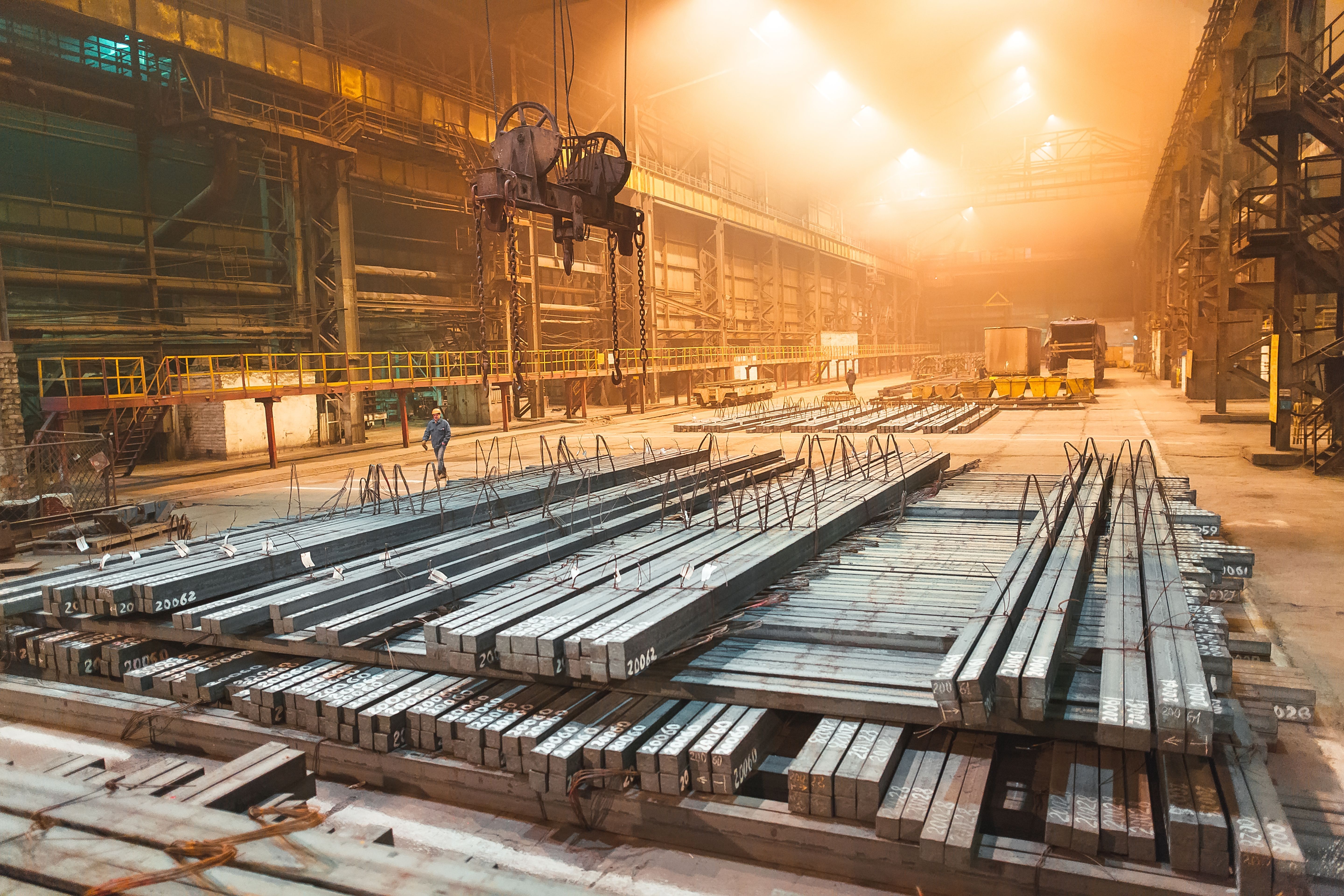

ResponsibleSteel publishes verified emissions data: The next step towards transparent, consistent emissions accounting and disclosure
ResponsibleSteel has published verified greenhouse gas (GHG) emissions data from Certified Sites as part of its members’ commitment to transparent emissions accounting and data disclosure.
As pressure for credible climate action grows, clear, consistent and comparable emissions data is essential. It enables steel buyers, investors, policy makers and other stakeholders to effectively assess the emissions performance of steel production sites and make informed decisions, helping to drive progress on industry decarbonisation.
Today, we mark an important early milestone on the journey towards transparent and consistent emissions accounting and data disclosure. Following multi-stakeholder agreement on what is necessary for credible data disclosure as part of the development of the Production Standard, we are now publicly disclosing these GHG data points. But this is just the beginning.
Moving forward, we aim to see wider adoption of ResponsibleSteel’s accounting methodology for the globally comparable metric of cradle-to-crude steel GHG emissions intensity at site level, and more sites working toward achieving ResponsibleSteel Certified Steel. With this shift, we will move towards being able to compare data reliably, enabling like-for-like assessments of emissions performance.
Whilst we are already seeing incremental emissions reductions across some steelmaking sites, in the coming years, we hope to celebrate deeper emissions reductions, verified based on robust, comparable data.
What data are sites required to disclose?
Under Principle 10 of the ResponsibleSteel International Production Standard, sites are required to disclose emissions data depending on their level of certification:
Core Site Certification
Sites certified against ResponsibleSteel’s Core requirements must measure, record and verify their total site-level GHG emissions using a regionally or internationally recognised methodology. The site may choose to use the ‘cradle-to-crude’ emissions accounting methodology developed by ResponsibleSteel, but it is not mandatory. Core Site Certification can apply to steelmaking sites as well as upstream or downstream manufacturing sites in the value chain.
Certified Steel
Sites that have achieved certification against ResponsibleSteel’s Progress Level requirements to market and sell products as Certified Steel must use the consistent ‘cradle-to-crude’ emissions accounting methodology developed by ResponsibleSteel. This enables like-for-like comparison of crude steel GHG emissions intensity across sites globally. Only steelmaking sites can be certified to sell Certified Steel. These sites must disclose their:
- Crude steel emissions intensity;
- Proportion of scrap used as metallic input;
- The Decarbonisation Progress Level achieved; and
- Product-level carbon footprint data.
All data published on ResponsibleSteel’s website has been independently verified by third-party auditors to ensure accuracy, which is then also reviewed by ResponsibleSteel’s Assurance Panel and Secretariat.
It’s important to note that while disclosing emissions at site level aids in the comparability of data, the Production Standard also permits the disclosure of a weighted average across a portfolio of sites instead, provided the portfolio meets the requirements for a ‘strategic business unit’ as defined in the ResponsibleSteel Glossary. In some cases, due to the nature of the business unit, a portfolio may consist of both certified and non-certified sites.
Disclosure of portfolio-level data on the ResponsibleSteel website represents a valuable next step and in time, we anticipate more steelmakers will opt to publish site-level data to strengthen transparency, enable clearer insights, and support decarbonisation progress.
Why are there gaps in the data?
It’s important to note that not all data is available yet. This could be because:
- A site is preparing for an upcoming surveillance or re-certification audit, after which the most recent data will be published; or
- A site was certified under an earlier version of the Production Standard. Public disclosure of GHG emissions data became a formal requirement with the publication of Version 2.0 of the Production Standard in September 2022. Sites certified under an earlier version are not obliged to publish this data on ResponsibleSteel’s website until it comes time for re-certification.
Working towards transparent, comparable emissions data measurement and reporting
Comparability of GHG emissions data is only meaningful when consistent measurement methodologies are applied. This includes (but is not limited to) aligning on emissions boundaries, the types of GHGs included, the use of default data, and the allocation methods for scrap and co-products.
For this reason, data from Core Site Certifications, while valuable, is not directly comparable across sites, as each may use different recognised methodologies.
To obtain certification to sell Certified Steel, however, sites must use ResponsibleSteel’s methodology to calculate their data, allowing for clear and consistent comparisons between steelmaking sites worldwide.
To strengthen comparability and accelerate the industry’s transition, ResponsibleSteel encourages all steelmaking sites, whether pursuing Core Site Certification or not, to adopt its emissions accounting methodology and to publish their data.
Learn more about ResponsibleSteel’s emissions accounting methodology here.
To explore the data disclosed by ResponsibleSteel Certified Sites, visit our new webpage.
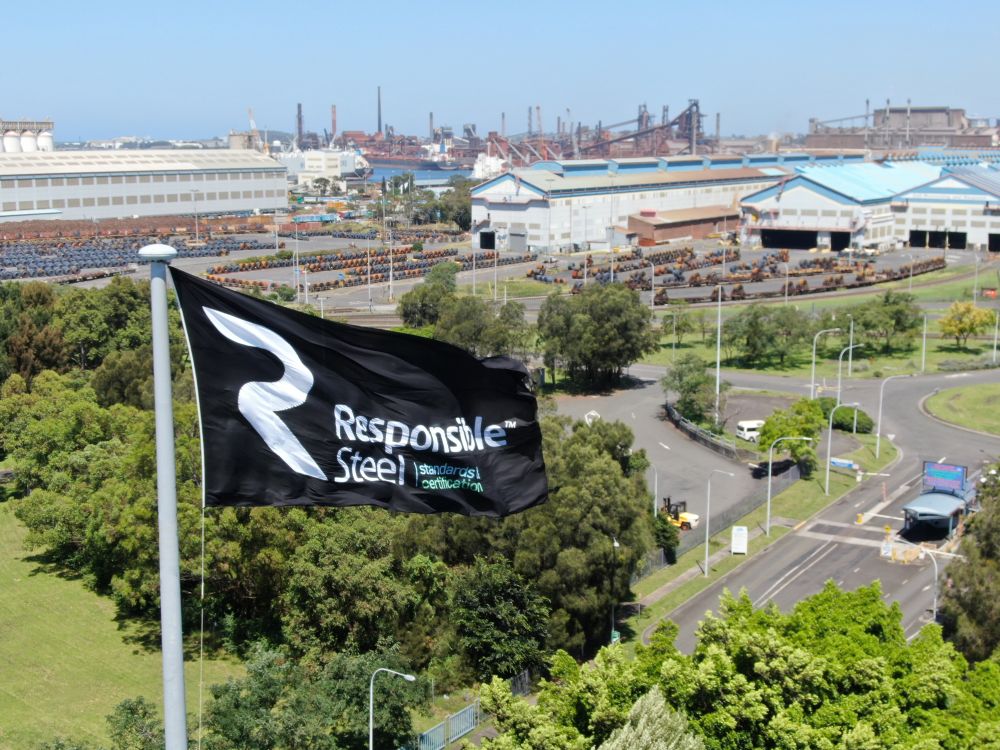

ResponsibleSteel: How did we get here?
Steel is everywhere. It’s in the buildings we live and work in, the cars we drive, and the wind turbines we’re relying on for a low-carbon future. It’s strong, versatile and essential. But it also comes with a heavy social and environmental footprint, having a profound impact on people and the planet.
As global attention increasingly began to zero in on climate and sustainability issues, industries like agriculture, textiles, and timber began developing standards to measure and improve their impacts. But steel, despite being one of the most widely used and most carbon-intensive materials globally, remained largely outside this conversation. There was no common language, no shared benchmark, and no way of independently measuring industry progress.
An idea takes shape
The concept for a global standard for steel started to take shape between 2011 and 2015, developed initially by the Australian Steel Stewardship Forum. The foundations were laid for an international, non-profit, multi-stakeholder organisation to tackle the most pressing sustainability issues in the steel industry.
By 2015, industry stakeholders, including BlueScope and ArcelorMittal, began coming forward to support the initiative, recognising the need for an independent initiative to drive and measure industry progress. In 2016, the first face-to-face council meetings were held, and the organisation was incorporated as the Steel Stewardship Council.
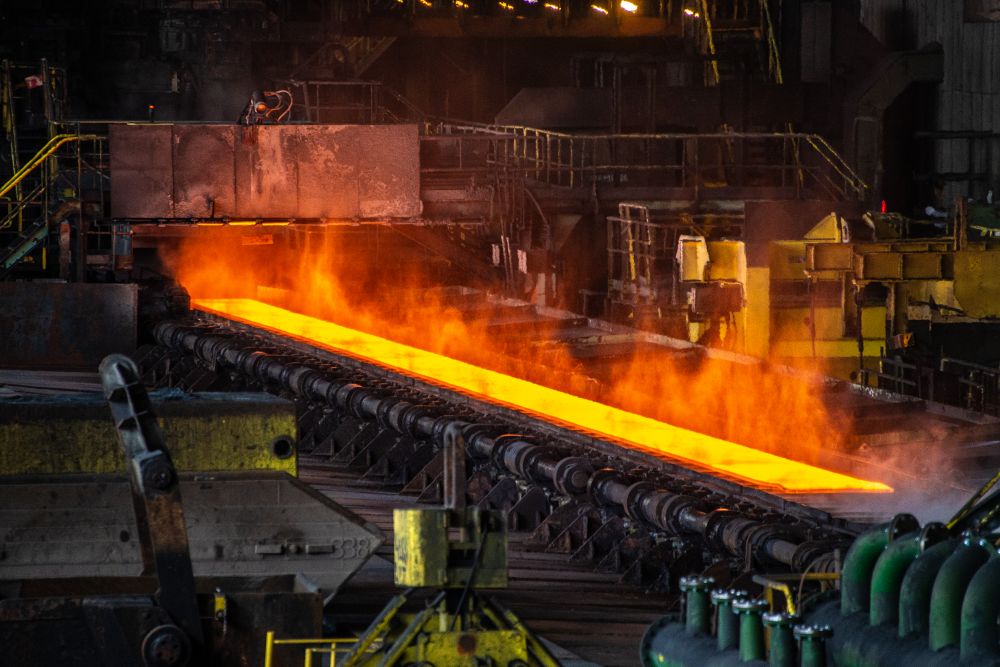
The development of the first Standard
Developing a sustainability standard for one of the world’s most complex industries was no small task. But by 2017, the first working draft of ResponsibleSteel’s Production Standard had been developed using ISEAL’s Codes of Good Practice as a reference.
Over the next two years, input from over 70 organisations and 180 individuals helped shape and strengthen the standard. In 2019, the ResponsibleSteel International Production Standard Version 1.0 was approved by both business and civil society members, marking a critical milestone in making responsible steel a global reality.
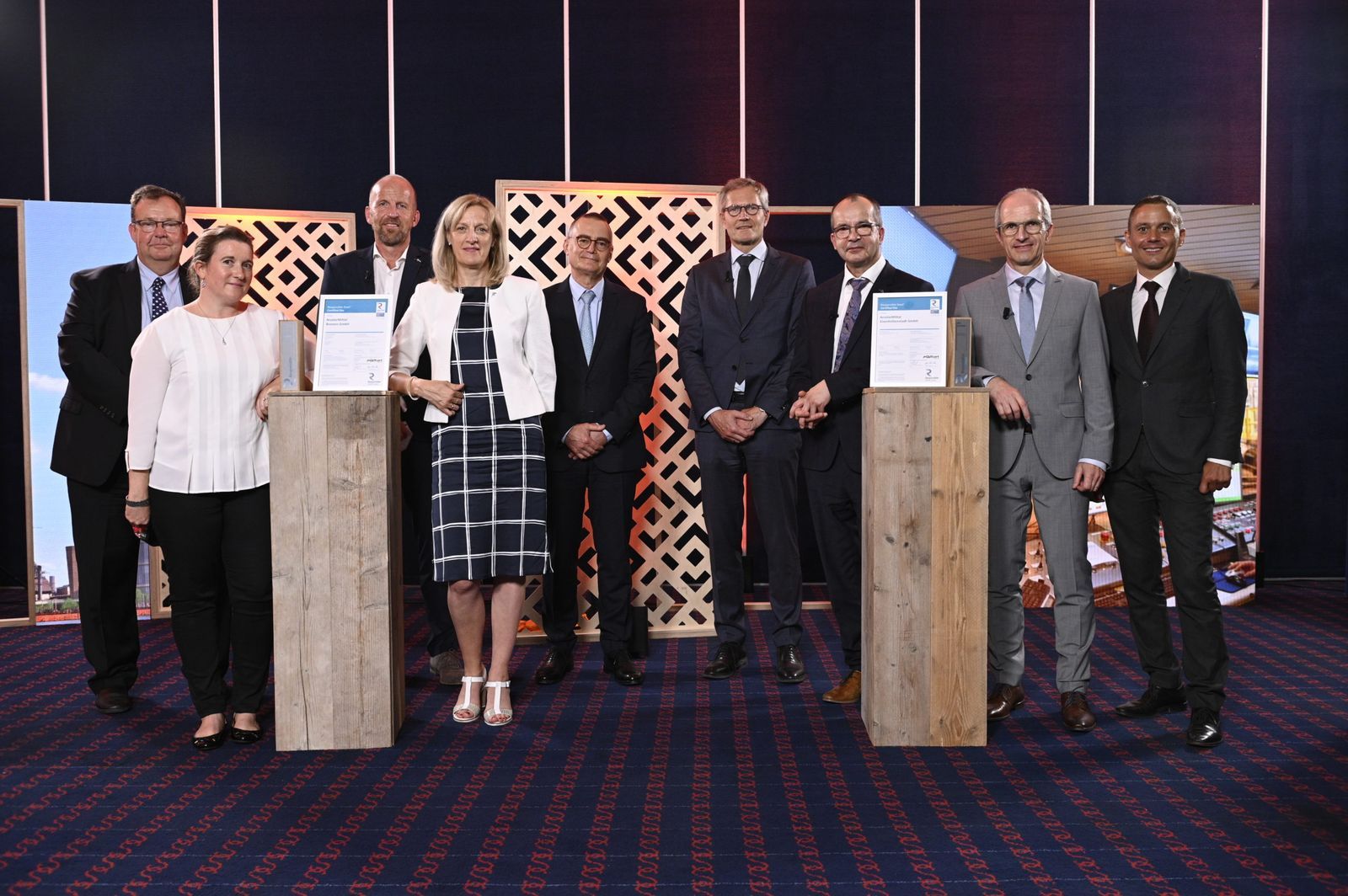
The first ResponsibleSteel Certified Sites
Within two months of launching the Standard, the first steel sites began the audit process. Despite setbacks caused by the COVID-19 pandemic, the world’s first ResponsibleSteel certifications were awarded in 2021 to four ArcelorMittal sites in Belgium, Germany, and Luxembourg.
Momentum quickly grew. By 2022, sites in Australia, North and South America, and Asia were certified, and by November, ResponsibleSteel Certified Sites spanned five continents and covered over 100 million tonnes of steel production.
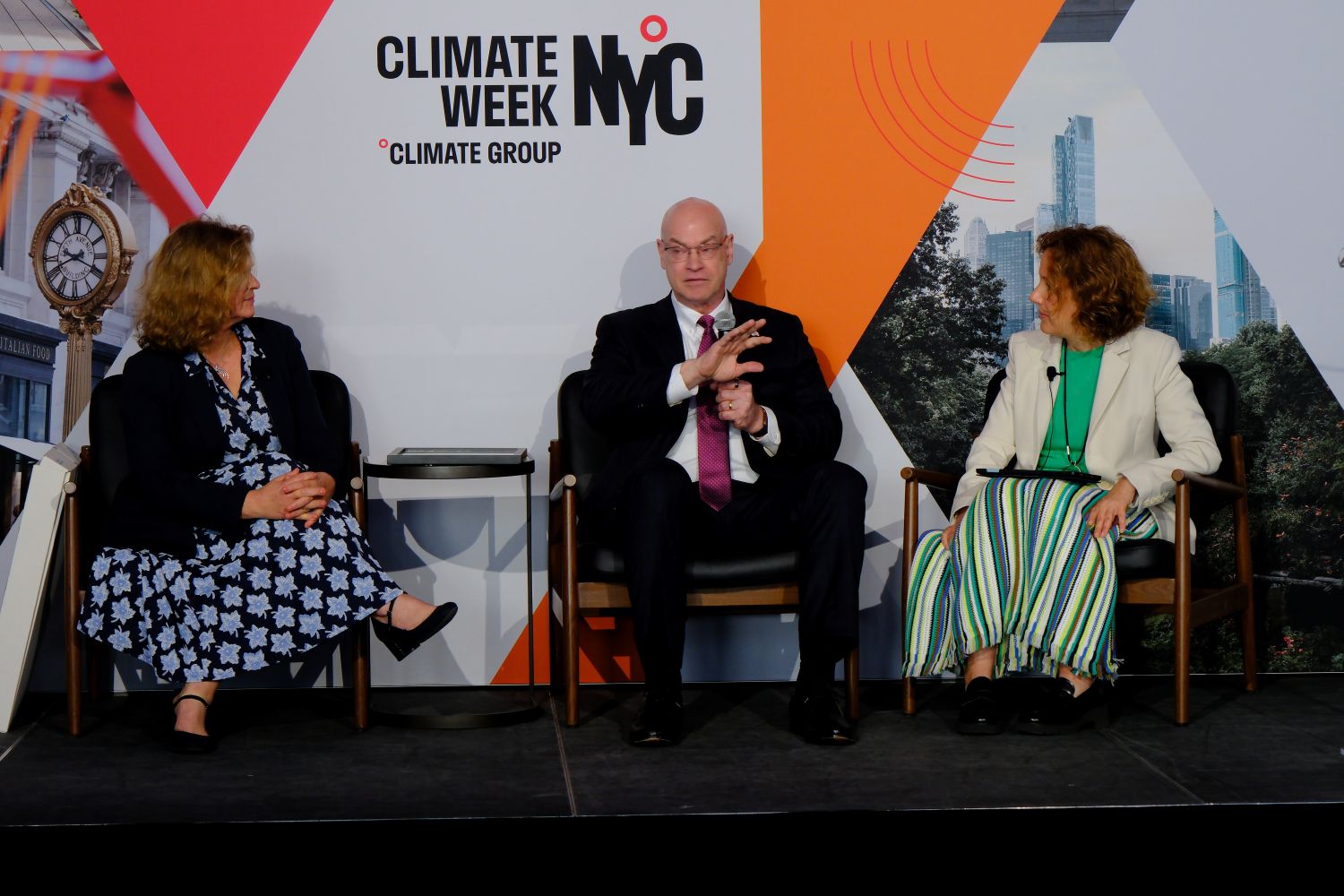
Raising the bar: Certified Steel
Even before the first certificates were issued, work had already begun on a more ambitious task to define what truly low-emission, responsibly sourced steel should look like.
This led to the development of rigorous requirements on decarbonisation and materials sourcing. These requirements were refined through member working groups, public consultations, and a 12-month test phase, before being finalised as part of the ResponsibleSteel International Production Standard Version 2.1, published in 2024.
Version 2.1 marked the green light for steelmakers ready to take their ResponsibleSteel journey to the next level: Certified Steel. In September 2024, at Climate Week NYC, U. S. Steel’s Big River Steel was unveiled as the first site globally to market and sell Certified Steel.
What’s next?
What began as a small initiative has become a global multi-stakeholder movement. Today, the ResponsibleSteel community numbers over 160 members from across the steel value chain and civil society organisations.
With the support of our members and partners, we continue to work to improve our standards and certification programmes. This includes work on the revision of the Production Standard to ensure it remains aligned with the needs of the industry and our planet, and the development of a Chain of Custody Standard to enable downstream buyers to make credible claims relating to the amount of Certified Steel in their products.
Together, we’re striving to construct an ecosystem to support a positive industry transition by engaging the full value chain, as well as policymakers and finance institutions, and by championing consistent, comparable emissions measurement to support alignment across standards and build a market for low-emission and near-zero steel.
Join the Movement
Steel is at the heart of the global economy – and the climate challenge. The work we do now will shape the industry of the future.
Find out how you can get involved here.


thyssenkrupp Steel achieves its first ResponsibleSteel certification
thyssenkrupp Steel has achieved Core Site Certification for its Duisburg site, the company's first certification against the ResponsibleSteel International Production Standard.
Situated in Germany’s industrial heartland in the Ruhr region, the Duisburg site is at the centre of thyssenkrupp Steel’s operations. In continuous operation since 1891, its location on the Rhine enables fully integrated steel production. The site has an annual pig iron capacity of approximately 11.7 million tonnes from four blast furnaces and a crude steel capacity of around 11 million tonnes. Looking ahead, thyssenkrupp Steel aims to reduce its Scope 1 and 2 emissions by 30% by 2030 compared to 2018 levels and cut Scope 3 emissions across the value chain by at least 16%.
Annie Heaton, CEO of ResponsibleSteel, commented, “The certification of thyssenkrupp Steel’s Duisburg site marks a major milestone as the largest steelmaking site in Europe to achieve ResponsibleSteel certification to date. It reflects thyssenkrupp’s commitment to rigorous, international sustainability standards and an assurance system that involves multiple stakeholders and goes beyond carbon emissions to include other environmental and social requirements. With plans underway to introduce direct reduction technology, this certification represents an important step on the site’s path towards responsible, lower-emission steel production. And at a time of growing pressure and uncertainty for the industry, thyssenkrupp’s achievement is evidence of the practical steps being taken to drive real, measurable progress.”

thyssenkrupp Steel serves a broad customer base across 48 countries, with key markets including the automotive industry, mechanical engineering, industrial machinery, special vehicle manufacturing, household appliances, packaging, energy, and construction.
Marie Jaroni, Chief Transformation Officer at thyssenKrupp Steel, states: "Achieving ResponsibleSteel certification is a significant milestone for our company. It assures our customers that we uphold the highest standards of environmental and social responsibility. This bolsters confidence in our products and processes and underscores our dedication to a sustainable future."
Duisburg employs over 16,000 workers and contractors, representatives of which were consulted as part of the site’s audit alongside several external stakeholders. Representatives from the union, embassy, local authorities, water management body, worker support network, academic, community members, and neighbours were invited to give their input to the audit.
Take a look at the certificates and public audit summaries here.


Holding steel to a higher standard: What is ResponsibleSteel?
Steel is everywhere. It’s in the buildings we live and work in, the cars we drive, the bridges we cross, and the products we use every day. It's an essential material in the modern world and critical to the renewable energy transition.
But steel also comes with a cost. It’s a major source of emissions, contributing to 10% of global energy-related emissions, and the way it’s produced can have serious impacts on local communities and ecosystems. With growing pressure to reduce emissions, improve supply chain practices, and meet evolving regulations, the steel industry faces a huge challenge.
That’s where ResponsibleSteel comes in.
We're a global not-for-profit organisation created to maximise steel’s contribution to a sustainable world. Our mission is to be a driving force in the production of socially and environmentally responsible near-zero steel, steel that buyers and investors can get behind.
ResponsibleSteel supports:
- Steelmakers to demonstrate good practice on social and environmental issues, and measurable progress on decarbonisation
- Steel buyers and investors to make informed decisions and reduce risk in their supply chains and portfolios
Together, we have the opportunity to do things differently and support the industry's transition to a responsible, low-emission future.
What we do
ResponsibleSteel is the global standards and certification initiative for the steel industry. Working collaboratively with over 160 members from across the steel supply chain and civil society, we have developed the ResponsibleSteel International Production Standard via a process that uses the ISEAL Codes of Good Practice as a reference.
The ResponsibleSteel International Production Standard contains 13 Principles covering key environmental, social and governance issues identified and agreed upon by our members for the responsible production of steel. The Production Standard evaluates the full picture—not just carbon emissions, but also labour rights, human rights, water use, biodiversity, raw material sourcing, and other key issues that affect people and the planet.
Certification against the Production Standard combines all the complexities of good social and environmental performance in one indication. Steelmaking sites must undergo rigorous, third-party audits to become certified, ensuring that a site is meeting the highest environmental and social standards.
Certification provides steelmakers with a clear framework for improvement and helps buyers, investors, and other stakeholders understand whether a site is operating responsibly.
How it works
Certification is broken down into Core Site Certification and Steel Certification, or ‘Certified Steel’.
Core Site Certification against the Production Standard is the first step sites can take on their ResponsibleSteel journey. Sites undergoing Core Site Certification are evaluated against over 300 core requirements, covering the key social and environmental aspects of steelmaking such as pollution, biodiversity, water stewardship, labour rights and local communities. Core Site Certification is a major achievement, requiring commitment at the corporate level and across all of the site’s operations.
Now, steelmaking sites can build on their Core Site Certification, pursuing certification against the Production Standard’s Progress Level requirements for decarbonisation and responsible materials sourcing. The Production Standard defines four Progress Levels for the measurement of decarbonisation and responsible materials sourcing. Steelmaking sites that achieve at least Progress Level 1 for both are able to market and label their products as ‘Certified Steel’.
Why it matters
The need for reliable, consistent, comparable data in the steel industry has never been greater. Governments are introducing stricter climate disclosure regulations. Steelmakers and buyers are under pressure to reduce emissions and meet consumer demand for more sustainable products. And investors want to know which steelmakers are producing responsibly and planning for the future.
Certified Steel helps steelmakers show progress, build trust, and stand out in a competitive market. And it gives buyers and investors the confidence that a site has not only met the strong environmental and social criteria required for Core Site Certification, but is also making measurable progress on decarbonisation and materials sourcing. Certified Steel:
- Assures that steelmakers are meeting the highest social and environmental standards
- Offers credible, comparable emissions data to simplify decision-making
- Reduces supply chain and financial risks, protecting reputation and value
Working together to shape steel’s future
The industry will not transform overnight. And the transition cannot be left to steelmakers alone. Driving progress in the industry will require clear demand signals from steel buyers and backing from investors. That’s why we are working closely with buyers and investors to forge a path to a sustainable future for steel. Together, we’re helping to build a global market that is better for people, for business, and for the planet.
If you want to learn more, get involved, or see how ResponsibleSteel could support your work, we’d love to hear from you. Let’s take steel from strength to strength.
Learn more about ResponsibleSteel standards and certification here.
Are you a steel buyer or investor? Find out how you can get involved here.
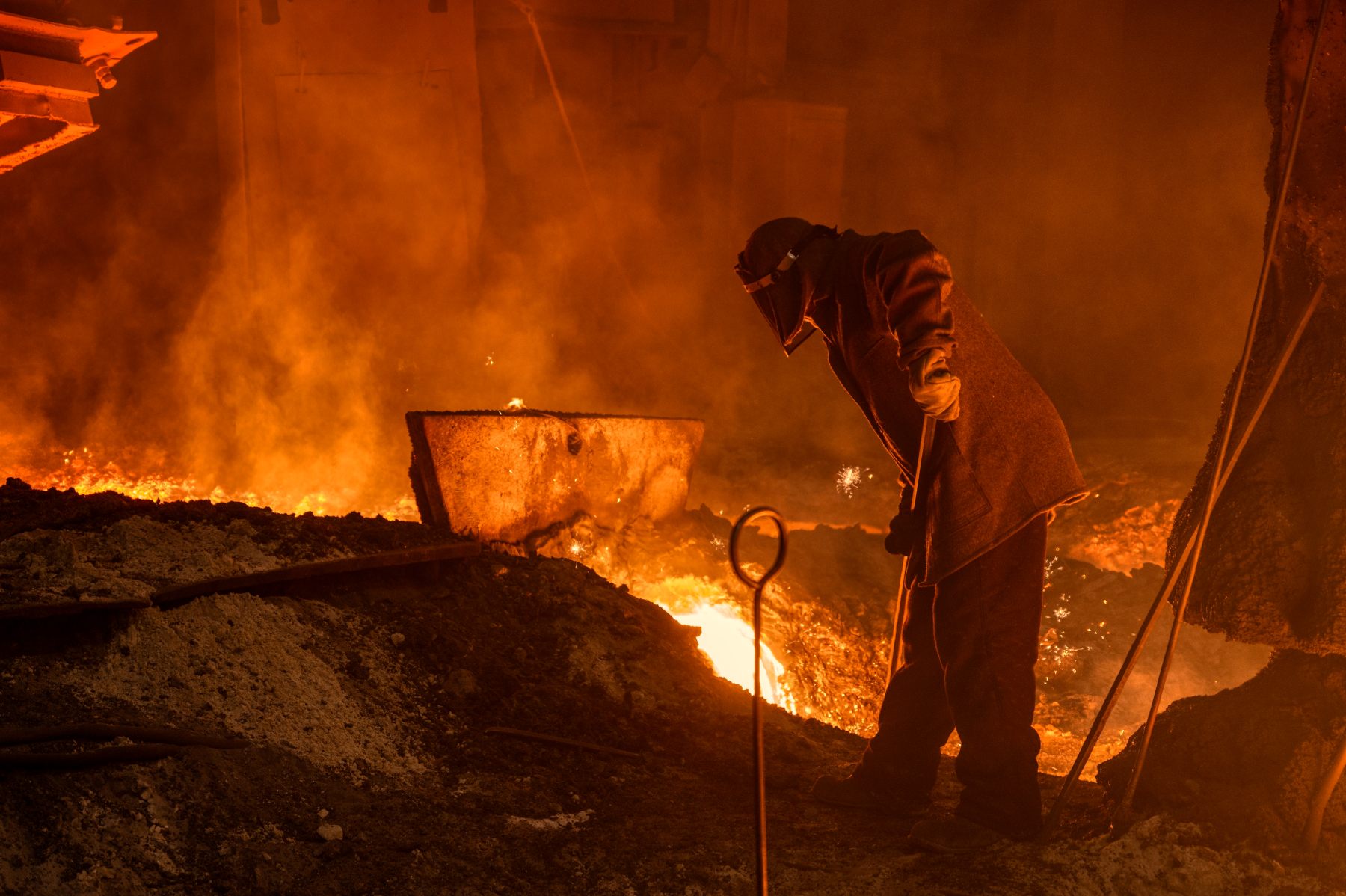

June 2025 Newsletter
The June edition of the ResponsibleSteel newsletter is here!
This month, we’re sharing key updates, including the launch of our joint European policy briefing with @LESS and the publication of our Fundamentals for GHG Emissions Accounting and Classification - a reference document for policymakers, investors, steelmakers, and civil society, among others, to measure and track decarbonisation progress.
We also spoke with our Head of Programmes, Amy Jackson, in a Q&A about her background, what drew her to ResponsibleSteel, and her plans for the role.
Plus, explore insights from our recent Just Transition Workshop and discover ways to get involved in our initiatives.
Click here to read the full newsletter.
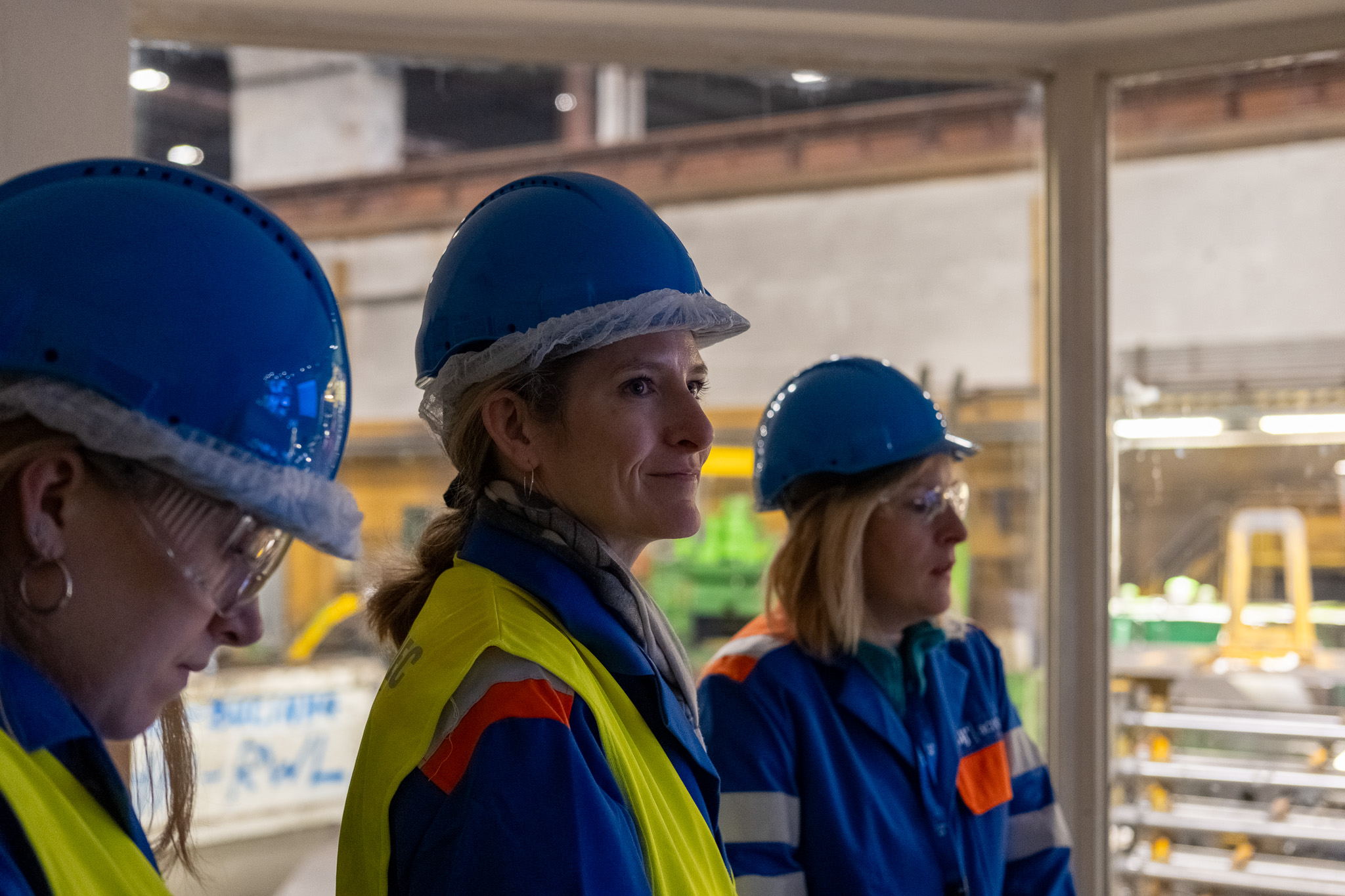

Meet the Team: Amy Jackson, Director of Programmes at ResponsibleSteel
Earlier this year, we welcomed Amy Jackson to ResponsibleSteel as our new Director of Programmes. With a background spanning ethical trade, to agriculture and responsible investment, read on to learn more about her experience in the standards industry, what brought her to ResponsibleSteel, and what she sees as key priorities for the standards and assurance programme moving forward.
1. You’ve spent a significant amount of time working on global sustainability standards. What originally sparked your interest in this work?
My journey began as a case of being in the right place at the right time. After completing my degree in Animal Biology and Marine Conservation, I moved to London, seeking adventure, and worked in a restaurant whilst job hunting. I overheard some regulars speaking about sustainability and oceans - I introduced myself, started volunteering, and eventually, a paid opportunity opened at the Marine Stewardship Council. I stayed for 11 years!
I’ve always had a passion for sustainability, and the inclusive, science-based, solutions-focused approach of sustainability standards appealed to me. They acknowledge the importance of ensuring good actors are recognised and rewarded for their work, and to me, this seemed a very constructive way of engaging people and businesses in improving practices.
Joining MSC in its early days helped me experience all sides of the system, from standard-setting to assurance, fundraising, communications, commercial engagement, and all from within a global organisation. The diversity of the challenge, the evolving landscape in how standards are seen and used, and the commitment to credibility are what kept me involved for so long.
2. Your experience spans ethical trade, agriculture, sustainable cotton, and responsible investment. How has your work in these areas shaped your approach to sustainability at ResponsibleSteel?
I’ve been very fortunate to have had the opportunity to engage with this wide range of sectors and different groups of stakeholders. In each of these, the basis has been on a defined agreement of good practice (the most important first step!), then the organisations work to find different ways to aid, verify, and reward progress towards the good practice. So, the basics are quite similar, with different organisations employing different theories of change as to the most effective levers to pull.
The most significant benefit of learning each new area has been the important reminder that, apart from your key partners and stakeholders, no one is thinking about your area of work as much as you are, or as much as you think they are. This means it’s very important to be clear about the benefits that each stakeholder gets from engaging with your system, and to make sure you are listening.
3. At ISEAL, you played a role in developing best-practice frameworks. How will those experiences influence your work on ResponsibleSteel’s International Production Standard?
The most valuable learning from those processes was how to bring diverse stakeholders together to reach an agreement. In a multi-stakeholder environment, differing opinions on some of the specifics are inevitable, so we must instead focus on the objectives we are trying to achieve, which is usually where we can find common ground.
It is also essential to ensure each group’s voice is heard, and not just the loudest! For our standard revision, we will ensure we are clear, from the outset, about the stakeholder map and the minimum level of response needed from each group. At the same time, we need to be aware that because of the differing perspectives, it will likely be impossible to reach overall (enthusiastic)consensus in all areas. At ISEAL, finalising the Credibility Principles involved asking stakeholders to indicate for each one whether a) they were happy and wouldn’t change a thing, b) could not live with it, or c) they could live with it, but had some tweaks or improvements to suggest. This allowed us to understand where the deal breakers were and what was causing them. It also allowed us to move forward and finish the document, while still noting the potential areas to review for the next version.
.jpg)
4. What excites you most about the future of sustainability in the steel industry, and what role do you see ResponsibleSteel playing in it?
It has been an exciting and sharp learning curve coming into the steel industry, and I know this will continue for some time. This might be a standards nerd thing to say, but the thing that excites me the most is the agreement on the need for harmonisation and alignment of the methodologies we’re using to assess steel sustainability.
When I was preparing for my interviews for the job, I learned that depending on the methodology used, emissions numbers could vary by as much as 30%! This makes comparing performance and tracking improvements very difficult and means so much time is wasted on completing different reporting templates, rather than focusing on times and resources on making sustainability improvements.
With the Steel Standards Principles and the efforts of ResponsibleSteel and others to ensure interoperability, I think we are in a good place. In other sectors, this need for alignment has been noted. For example, in disclosure with the TCFD and TNFD, it allows all efforts to be pointed in the same direction, resulting in greater effectiveness and less wasted time.
What also stands out is the passion of the people involved –from the ResponsibleSteel team to our members and other stakeholders. There is a personal commitment to improving how steel is produced, and this passion and leadership are essential for making a difference.
5. You’ve worked on standards development, chain of custody, and assurance. What do you think are the most essential components when it comes to forming credible and impactful sustainability initiatives?
One reason I have come back to working with voluntary sustainability standards systems is because I love how beautifully all the different pieces fit together. Agreeing on what good looks like, assessing progress, assuring that a certain level is met, building capacity - it’s a whole system designed for continuous improvement, and it's what makes sustainability standards systems unique and special actors in the landscape. There are other standards, but it’s one thing to say what to do, it’s a whole other (harder)thing to make sure everyone’s doing it (assurance), and an even greater challenge to be certain that we’re making a difference (MEL: monitoring, evaluation and learning). This continued engagement with ensuring the effective implementation of the standard once it’s released is perhaps one of our collective community’s most understated USPs.
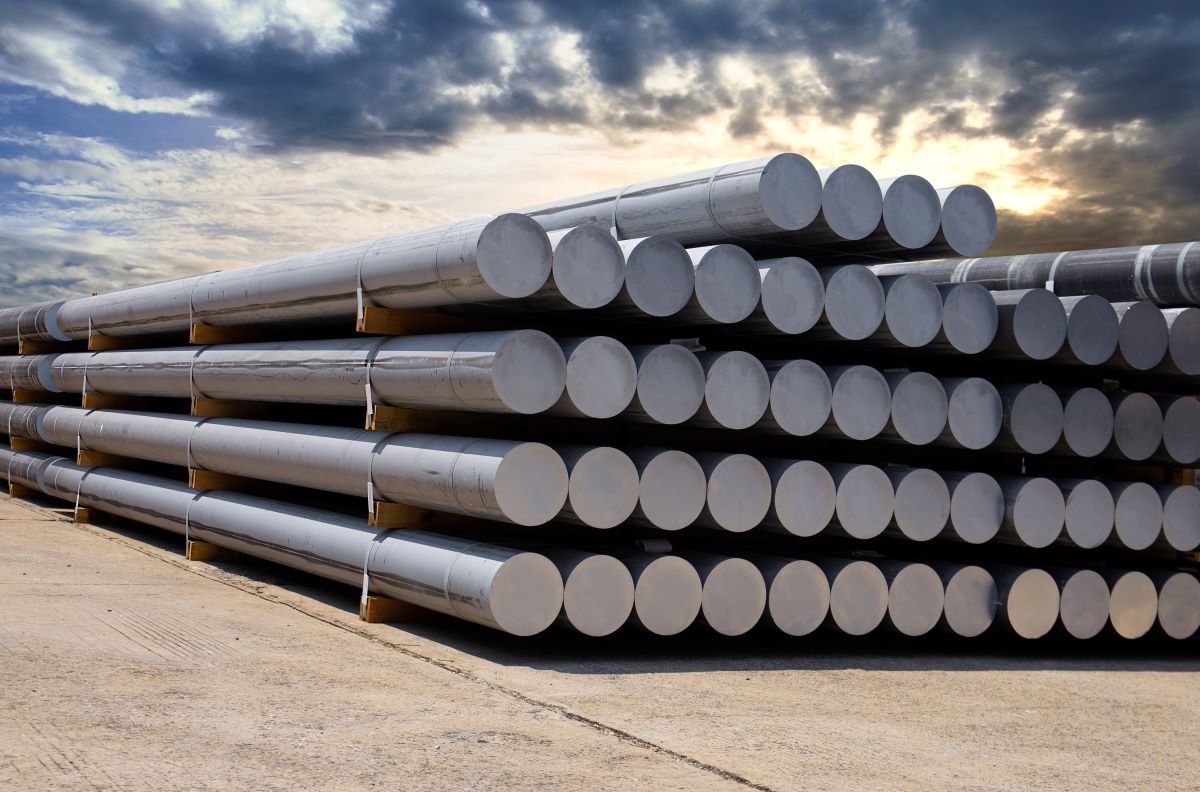

ResponsibleSteel publishes fundamentals for GHG emissions accounting and classification to drive transparency, comparability, and decarbonisation progress
To help improve the accessibility of ResponsibleSteel’s emissions methodology and accelerate robust emissions accounting and reporting, ResponsibleSteel has today published extracts from Principle 10 of the ResponsibleSteel International Production Standard relating to Climate Change and Greenhouse Gas (GHG) Emissions.
Importantly, this is not an independent standard against which steelmakers can make certification claims. Instead, ResponsibleSteel's Fundamentals for GHG Emissions Accounting and Classification is designed as a valuable resource for steelmakers, steel buyers, policymakers, investors, and civil society organisations to use as a reference to measure and track progress as the global industry transitions to lower-emission production practices.
The document aims to improve the comparability, consistency and transparency of emissions accounting and reporting across the global steel industry by outlining three of Principle 10’s fundamental components:
- ResponsibleSteel’s methodology for the calculation and disclosure of crude steel GHG emissions intensity at the site level.
- ResponsibleSteel’s classification system to assess a steelmaking site’s decarbonisation progress.
- ResponsibleSteel requirements for GHG emissions intensity declarations at product-level.
ResponsibleSteel’s “Decarbonisation Scale” approach enables all steelmaking sites, globally, to be compared on a like-for-like basis, based on transparent and fair accounting rules. By adopting this approach, the industry has the opportunity to increase the transparency and consistency of emissions data across the value chain, reducing administrative burdens and enabling more effective implementation of decarbonisation policies and mechanisms.
This new publication will be particularly valuable for stakeholders either looking to align with ResponsibleSteel’s approach or to build interoperability between GHG-specific frameworks, regulations, and procurement systems.
It is important to note that no claims relating to ResponsibleSteel certification, or its equivalency, or Decarbonisation Progress Level achievement, can be made based on this document alone. The document only represents a subset of Principle 10, which in full also addresses corporate commitments to the Paris Agreement, climate-related financial disclosures, and additional site-level emissions reductions. Nor does it include any of the other 12 Principles outlined in the Production Standard relating to the responsible production of steel.
We believe that truly responsible steel production requires steelmakers to go beyond decarbonisation and take steps to mitigate other social and environmental impacts. But amidst the growing urgency of the climate crisis, ResponsibleSteel remains committed to supporting global steel decarbonisation through practical tools developed with multi-stakeholder support. This latest publication reflects that commitment to offering robust, credible, scalable tools to accelerate emissions reductions at scale.
For any questions about the use or development of ResponsibleSteel’s Emissions Metrics, please contact standards@responsiblesteel.org.
Learn more about ResponsibleSteel’s Fundamentals for GHG Emissions Accounting and Classification here.
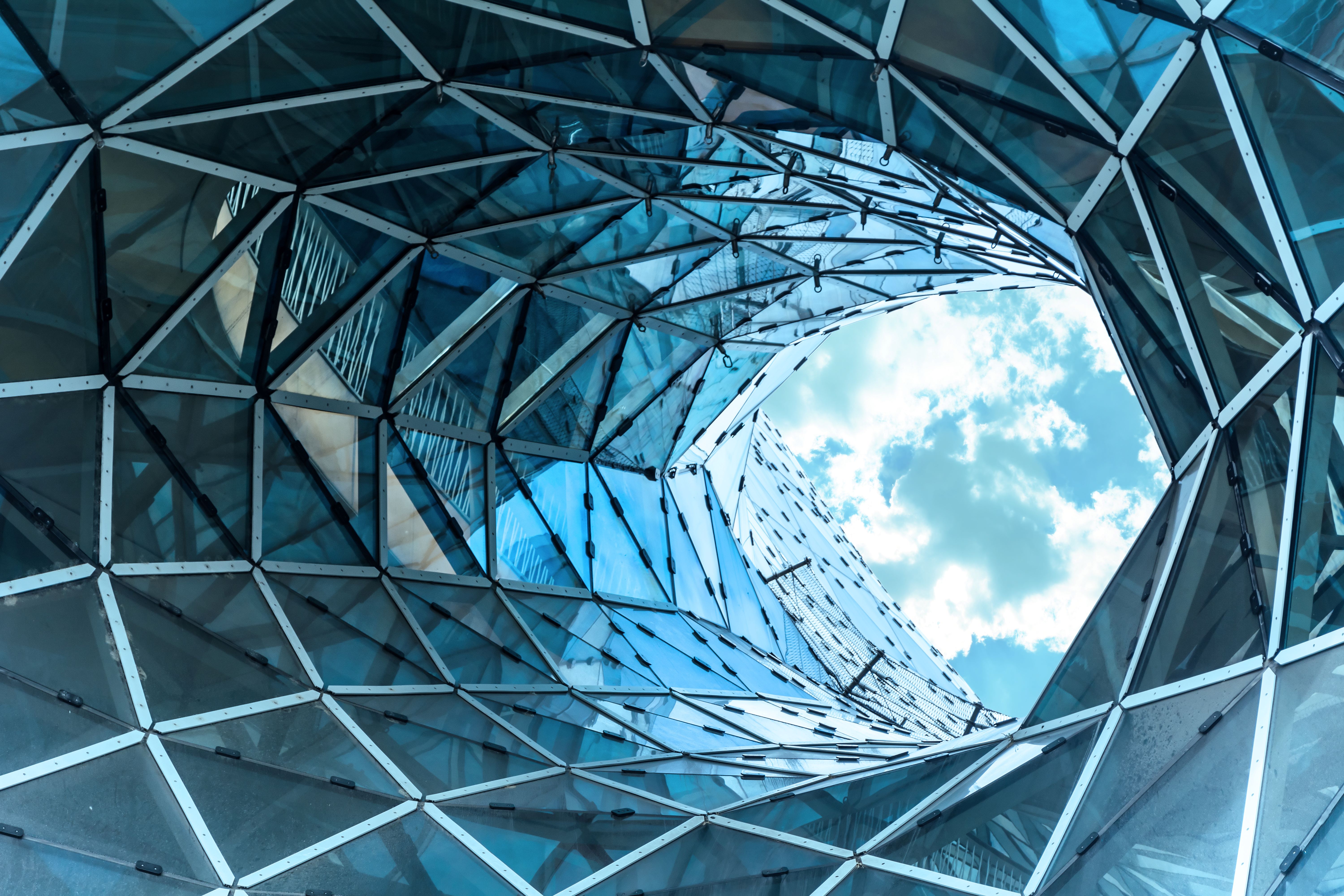

ResponsibleSteel and LESS aisbl urge robust, scrap-conscious approach to effective European steel decarbonisation
ResponsibleSteel and the Low Emission Steel Standard (LESS aisbl) today jointly release a new policy briefing, ‘The Steel Decarbonisation Scale’, urging European policymakers to adopt a more robust and realistic approach to steel decarbonisation—one that recognises the physical limits of scrap supply and incentivises genuine emissions reductions across all steel production routes.
The study highlights that Europe’s steel industry, as the world’s second-largest producer, is responsible for 6% of the European Union’s total emissions. With ambitious EU targets aiming for a 55% reduction in net greenhouse gas emissions by 2030 and net zero by 2050, the way steel decarbonisation is measured and incentivised is of critical importance.
A key finding of the study is that current policy discussions, including the European Steel and Metals Action Plan (ESMAP) and proposals for voluntary carbon labels for steel, risk undermining climate goals if they fail to account for the fundamental constraints on scrap availability. Despite a high global steel recycling rate of 85%, only about 32% of the world’s demand for new steel can currently be met with recycled scrap due to the long lifetime of steel products, according to the International Energy Agency (IEA). While the amount of available scrap is set to increase, the IEA estimates that scrap will still only be sufficient to meet 46% of steel demand by 2050.
“Steel decarbonisation requires an appropriate base for comparing steel products in terms of their global climate impact,” said Dr. Martin Theuringer, Secretary General of LESS aisbl. “Scrap is a valuable and limited resource. Any label or standard that ignores this risks distorting markets and ultimately slowing down the transition to truly low-emission steel. Our approach ensures that both primary and scrap-based production are incentivised to decarbonise, not just to compete for a fixed pool of scrap.”
ResponsibleSteel and LESS propose the adoption of a “steel decarbonisation scale” that complements traditional carbon footprinting by explicitly accounting for the ratio of scrap and primary iron used in steelmaking. This approach, already recognised by the G7 and incorporated into international standards, would:
- Prevent fruitless competition for a limited scrap supply
- Incentivise decarbonisation across all steel production routes
- Promote technology-neutral, WTO-compliant solutions
- Support the competitiveness of European industry while advancing global climate goals
“A European label for steel is a great opportunity to incentivise steelmakers to become globally competitive on their real decarbonisation progress,” said Annie Heaton, CEO of ResponsibleSteel. “A well-designed classification system will do this by taking into account scrap content in addition to the measurement of steel‘s carbon intensity, recognising that scrap will at best provide half of the world’s steel by 2050. As a result, this ‘steel decarbonisation scale’ approach incentivises investments that drive progress in the steelmaking process itself, whether in primary or secondary iron and steel making.”
The two organisations call on the European Commission to integrate the steel decarbonisation scale into the development of voluntary labels, lead markets, and investment support mechanisms, ensuring that future measures are effective, fair, and aligned with Europe’s climate ambitions.
Download the briefing here.
Access ResponsibleSteel’s approach to GHG emissions metrics here.
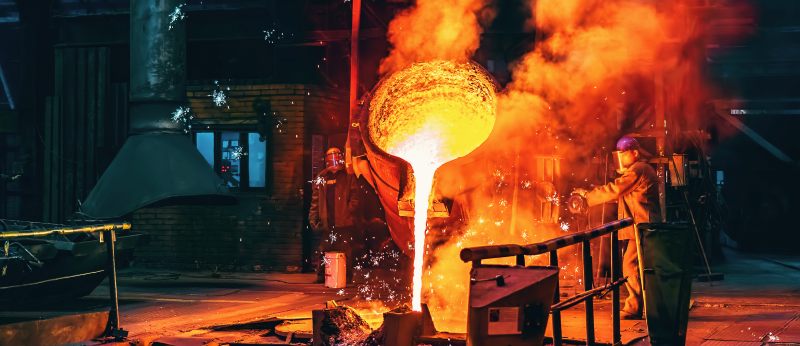

May 2025 Newsletter
This month, we’re building on the momentum from our recent AGM and Members Meeting, where we reflected on the progress of the past year and explored the key priorities for 2025.
We’ve launched a new events page for upcoming initiatives. Alongside this, we are announcing new training sessions and working groups, with workshops scheduled in the coming months.
We are also calling on members to submit guest blogs for the ResponsibleSteel website to share insights, innovations, and experiences of responsible steelmaking.
Read our latest newsletter for updates, opportunities to engage, and news from across our network.
Click here to read the full newsletter.

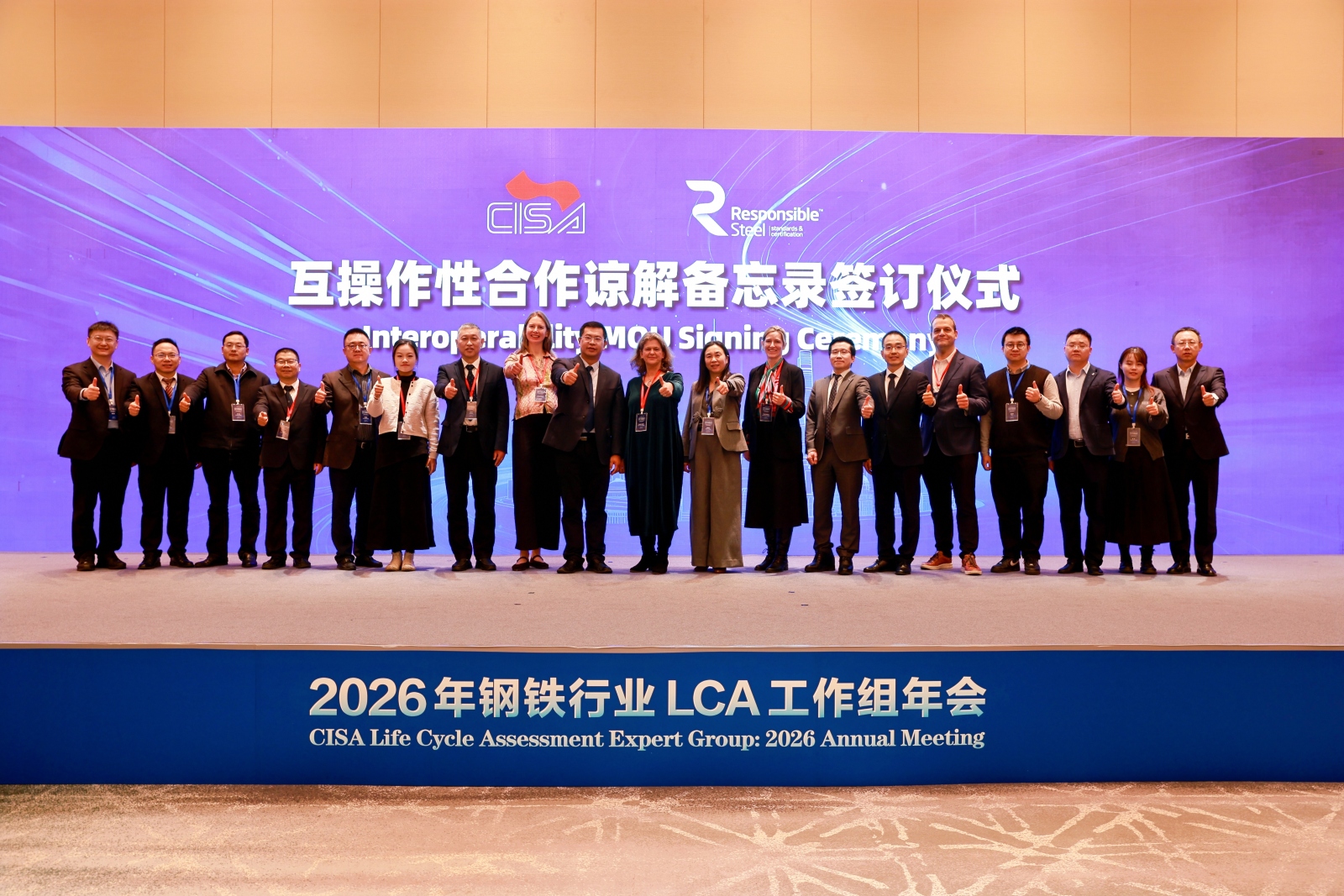

.jpg)
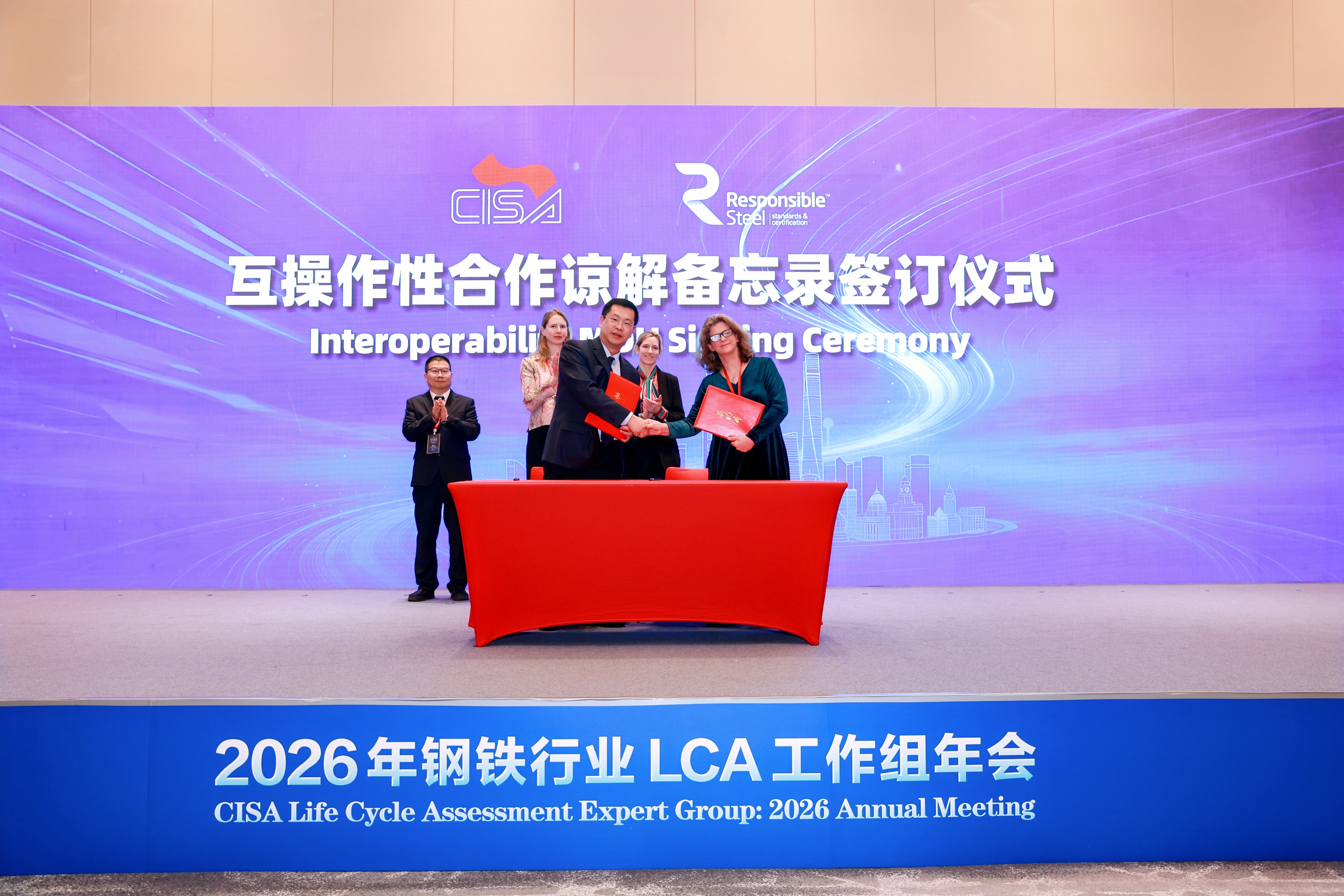
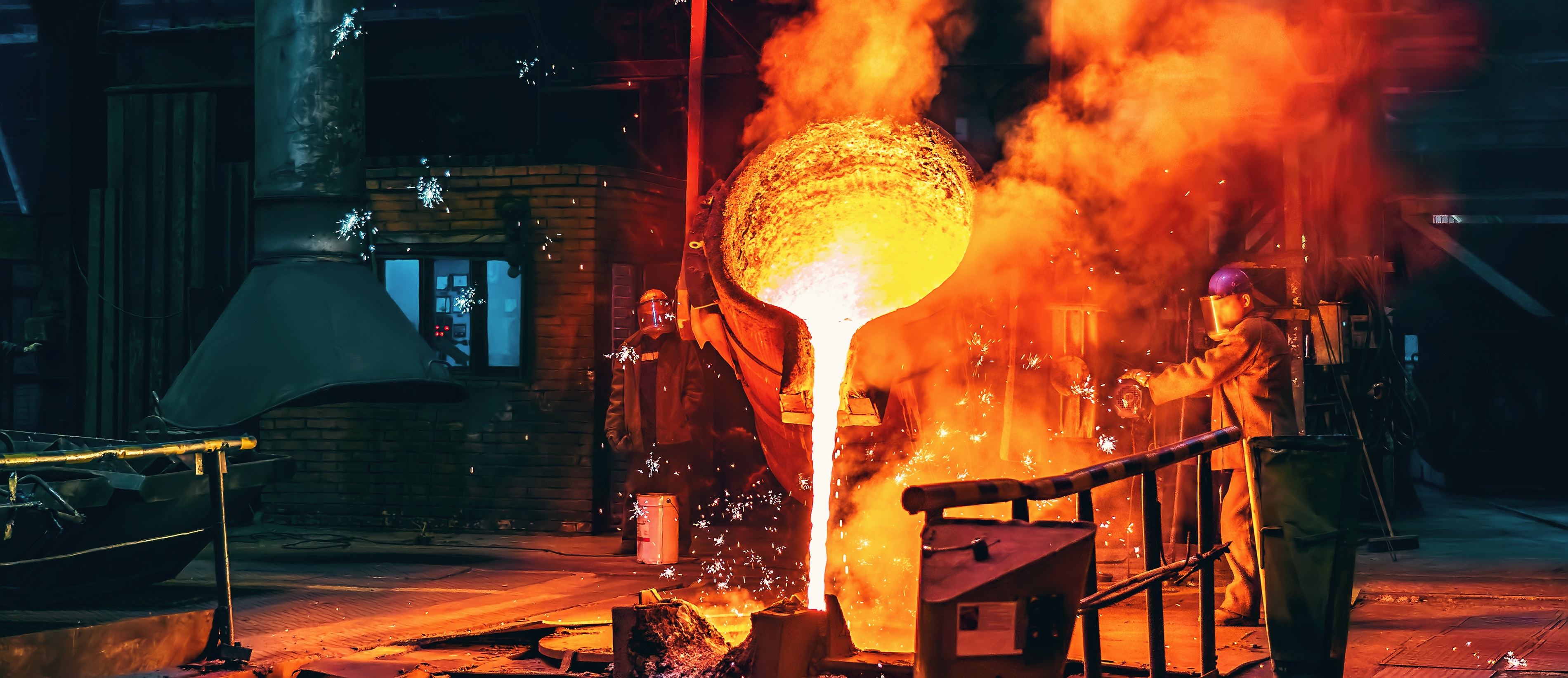

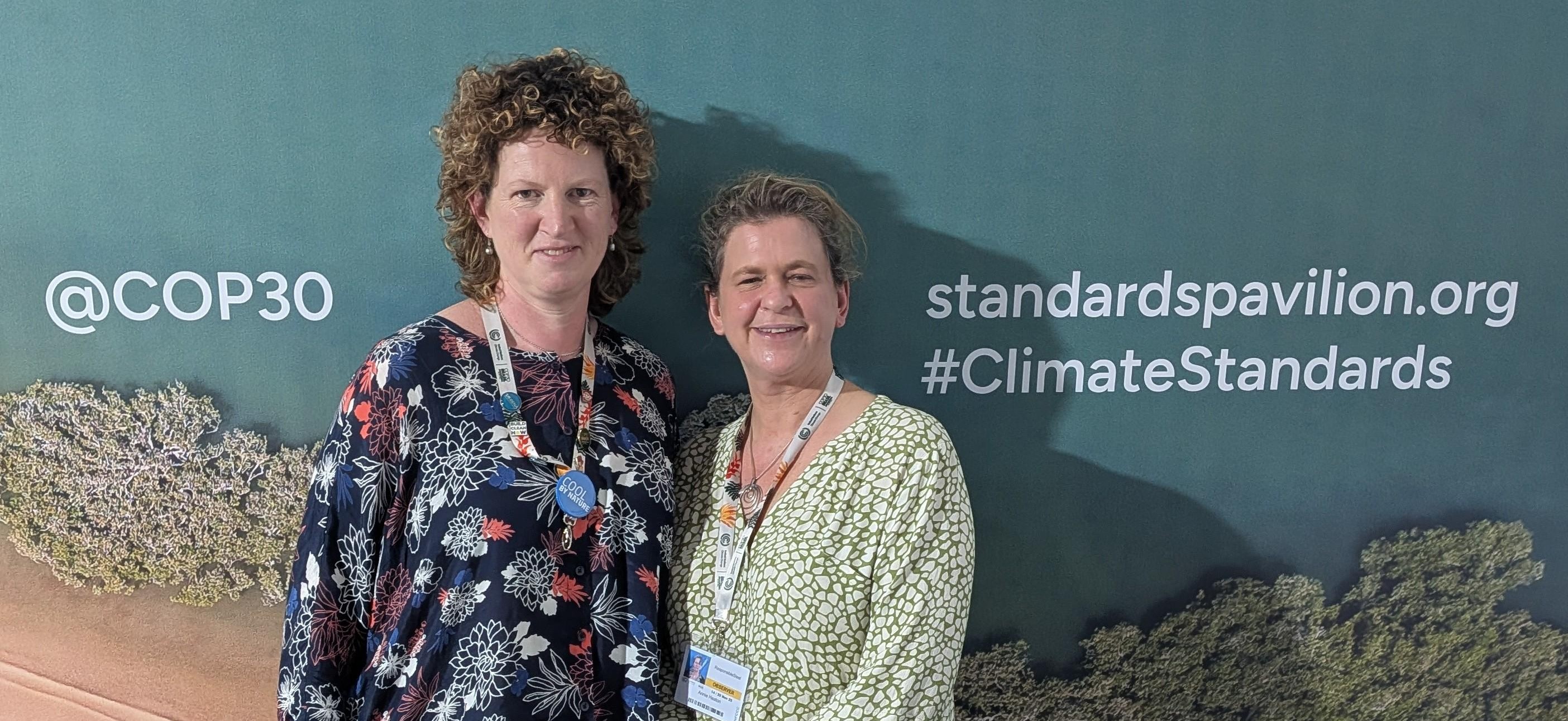
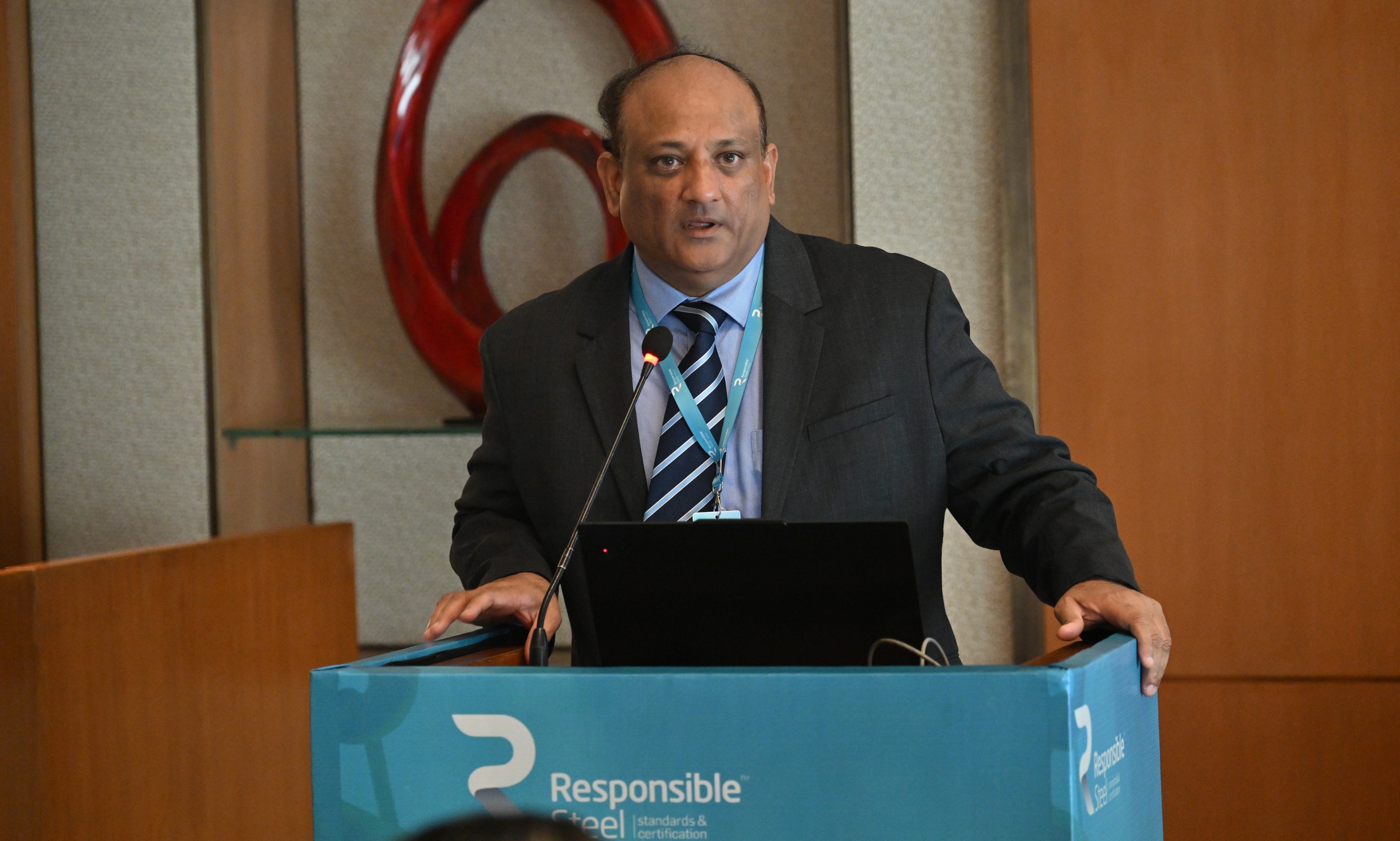
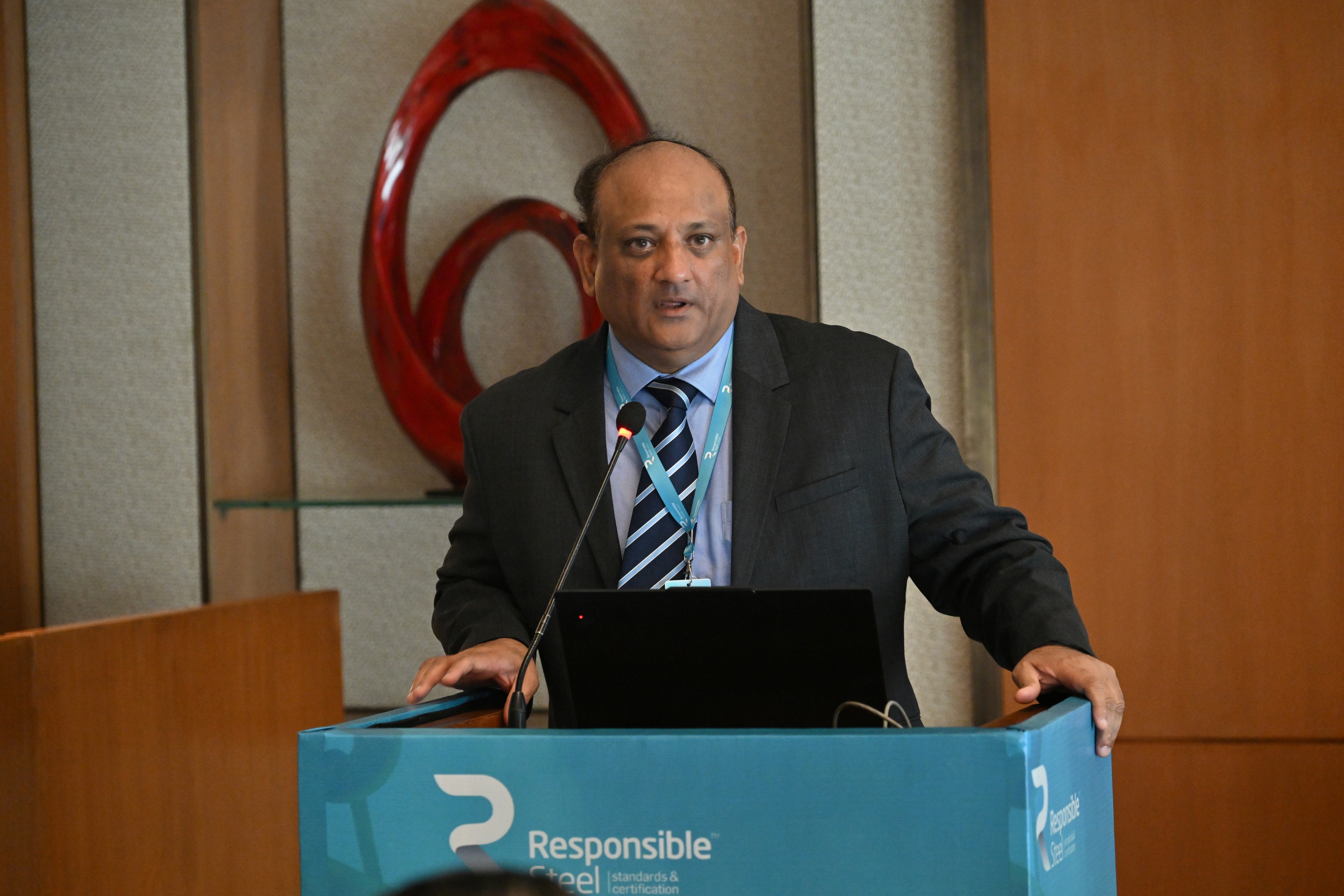
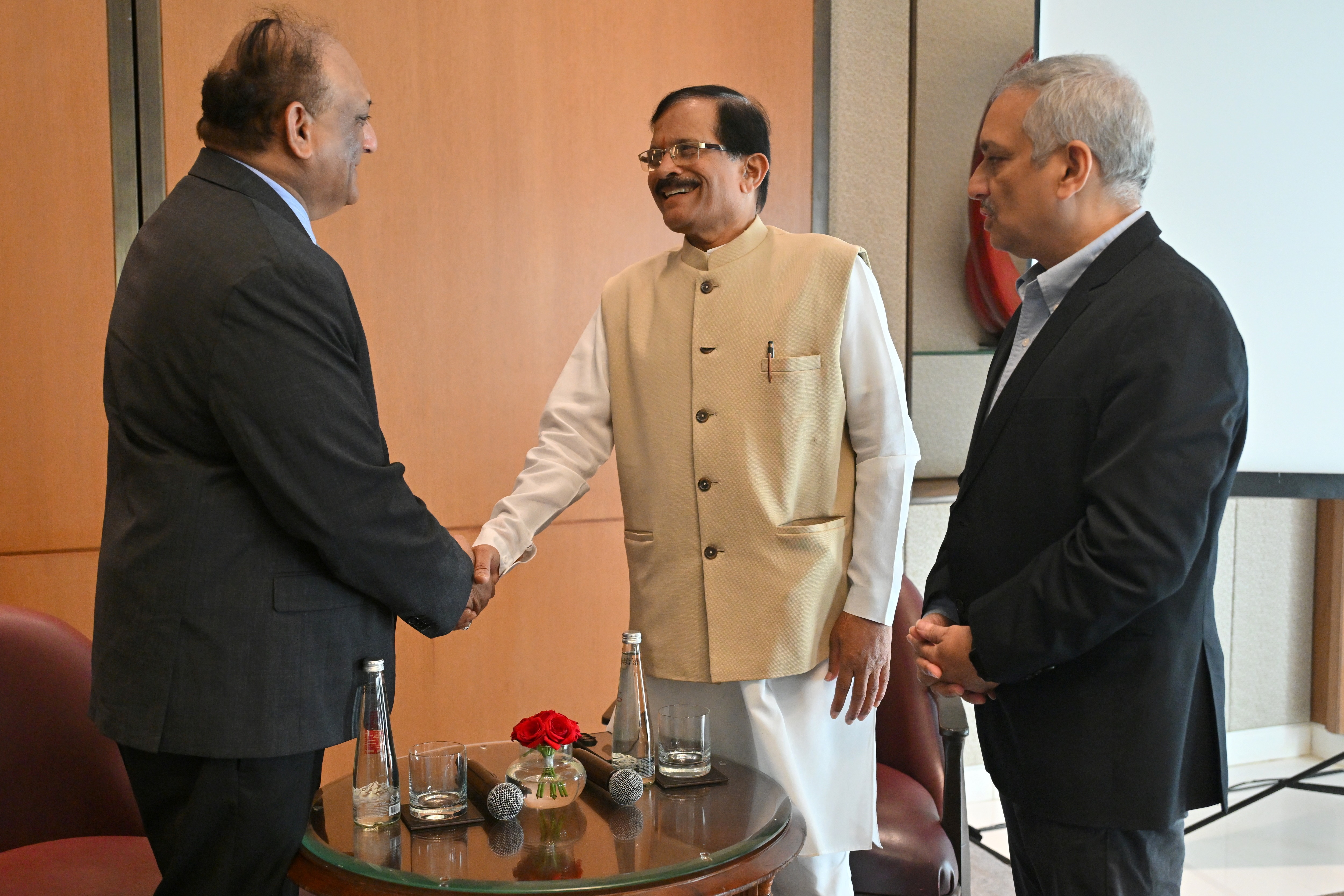
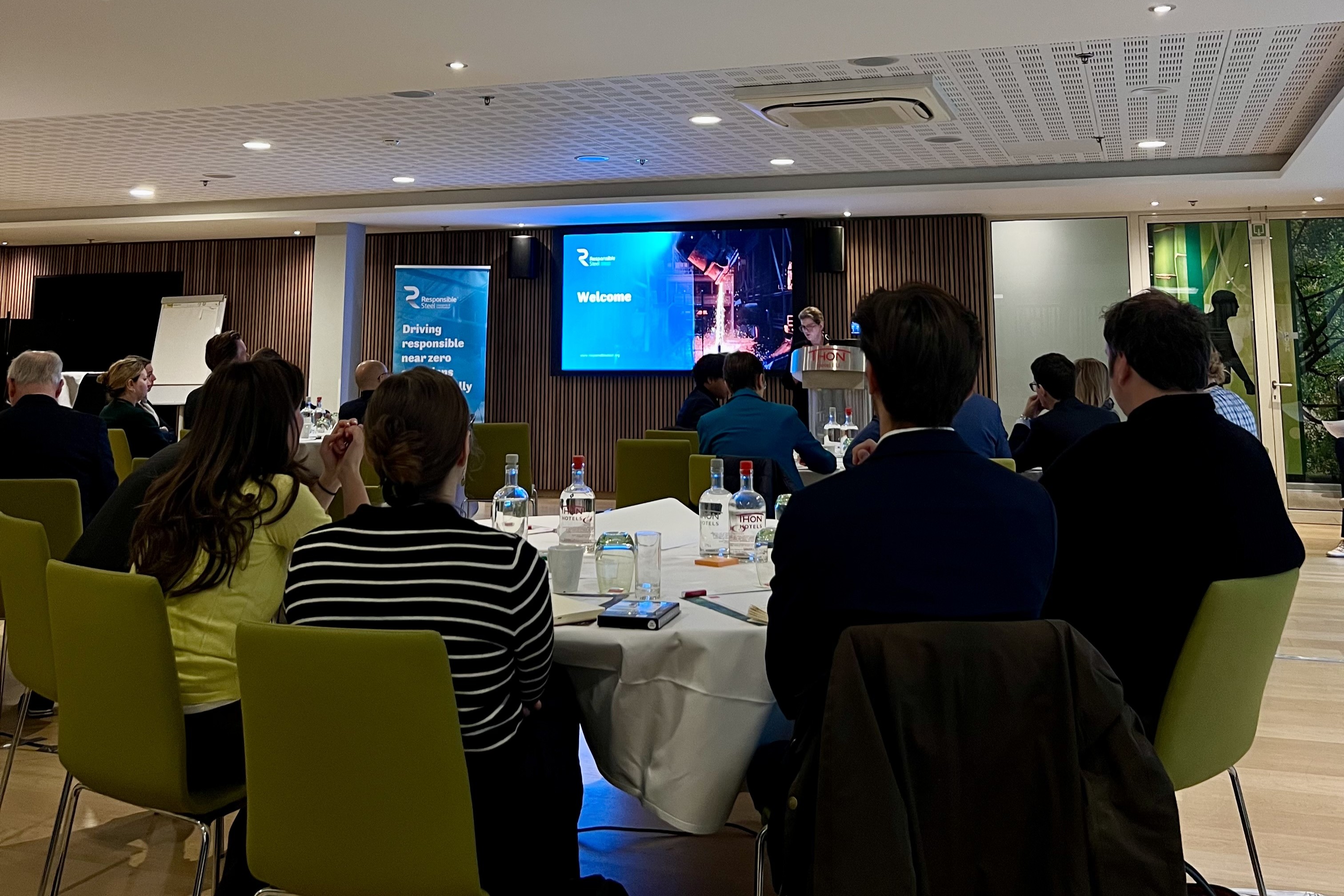
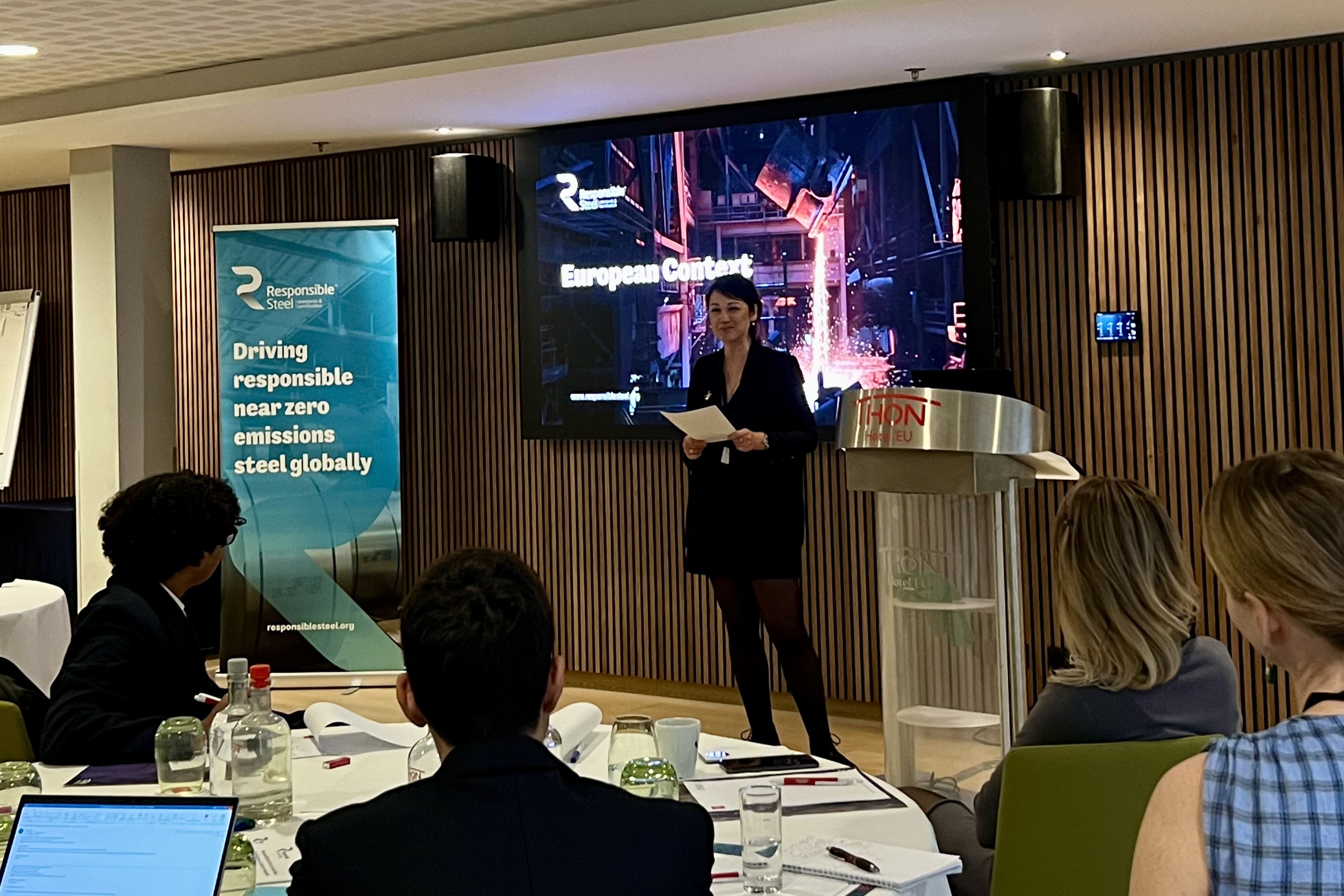
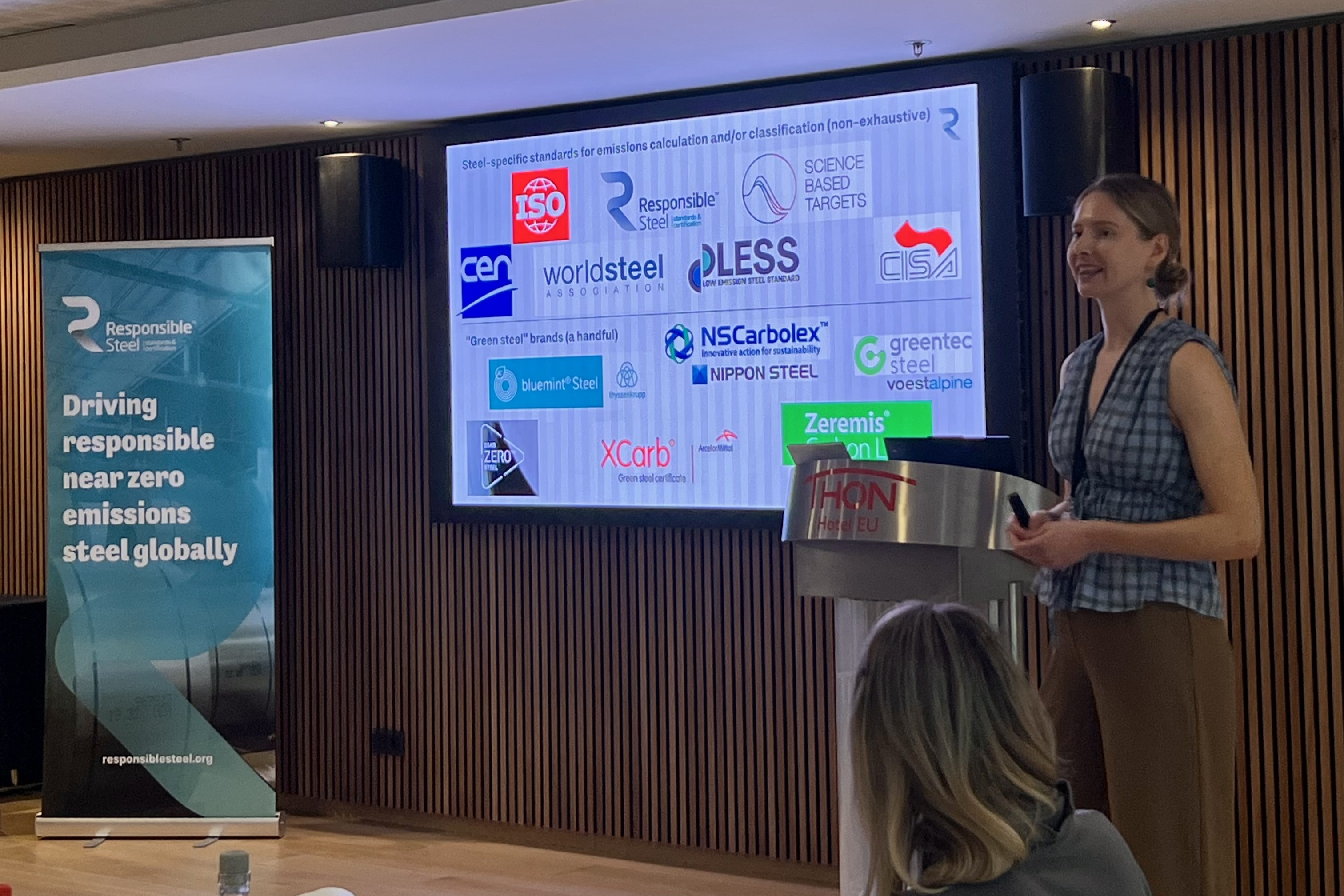
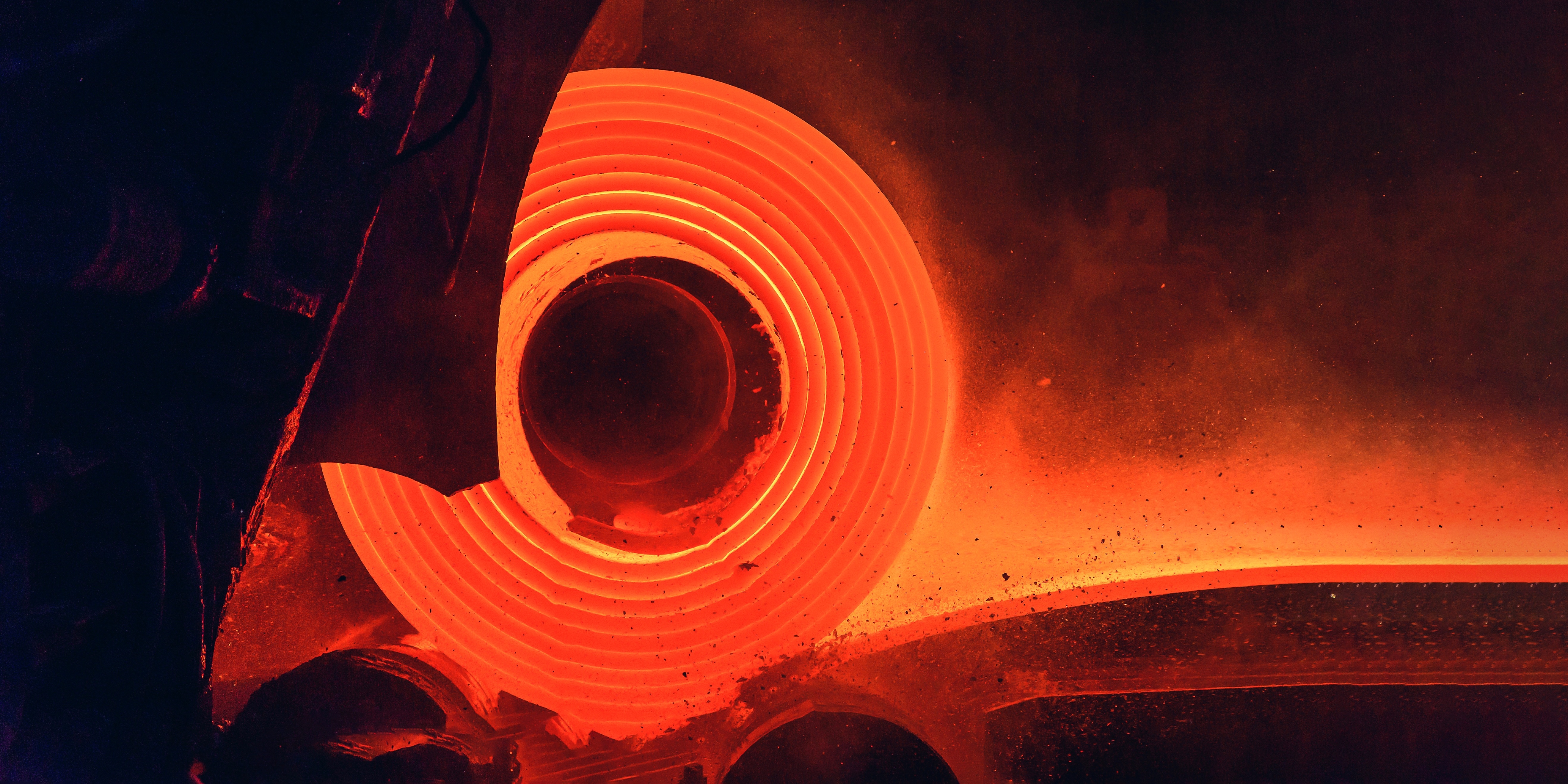
.png)
